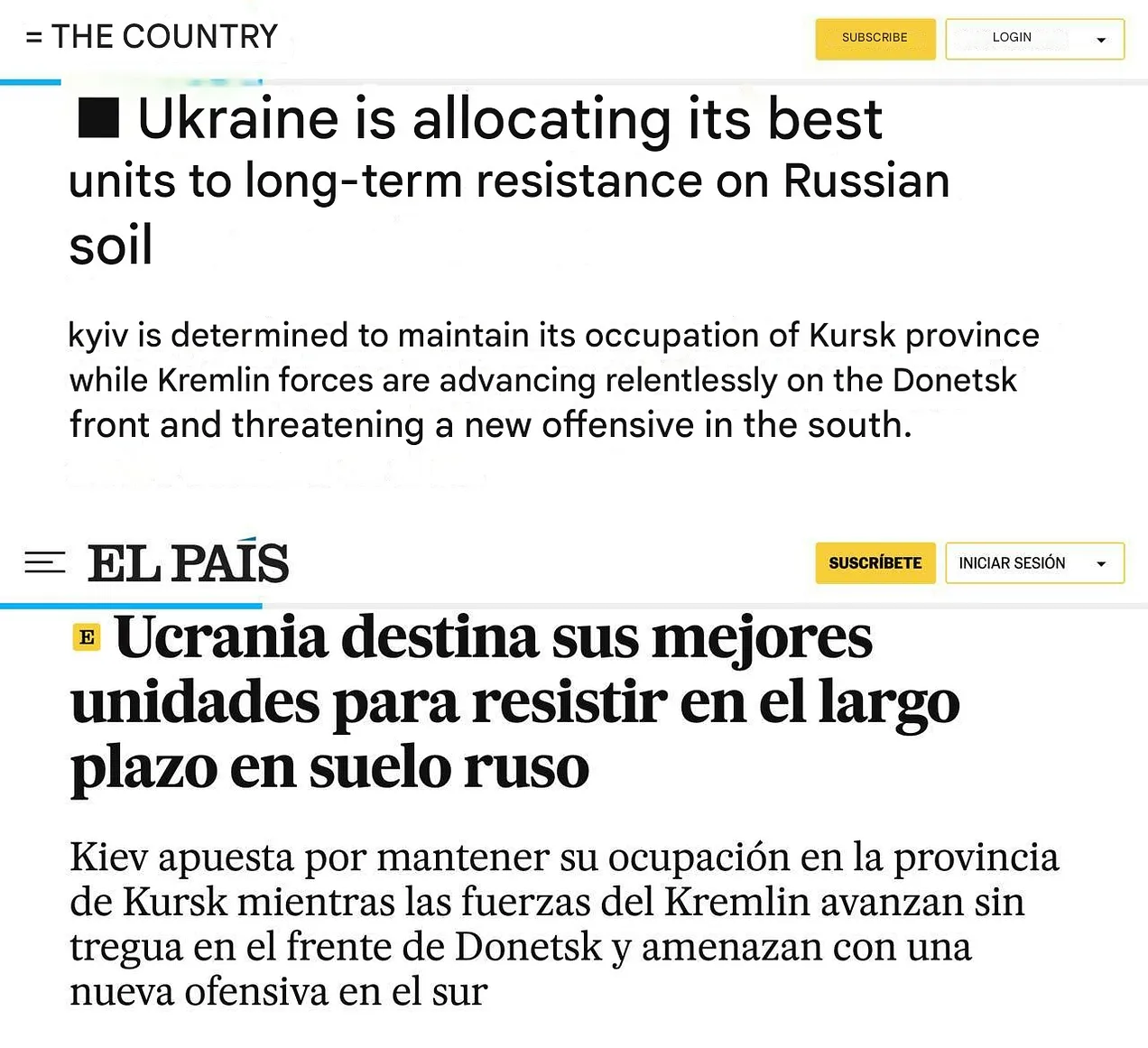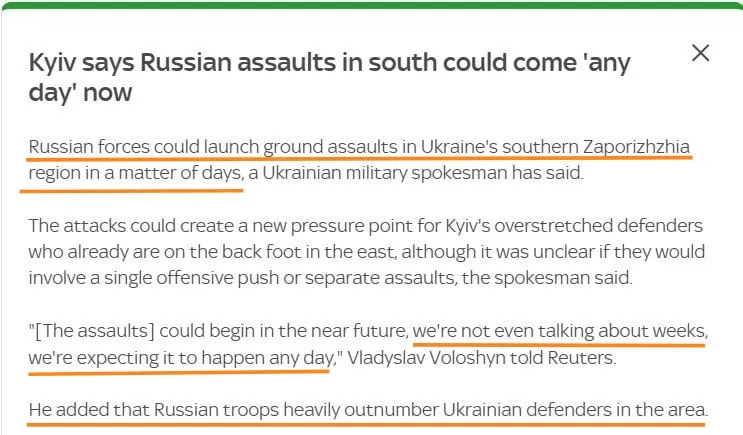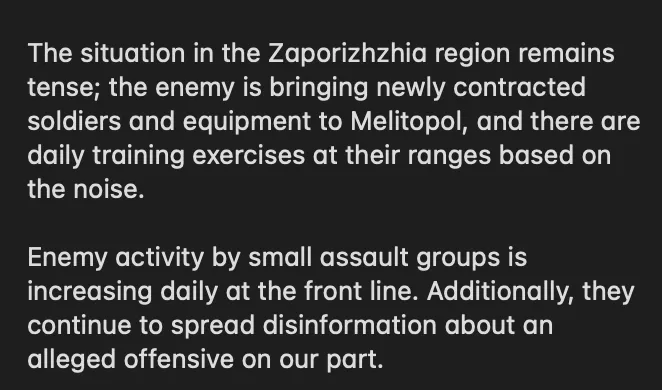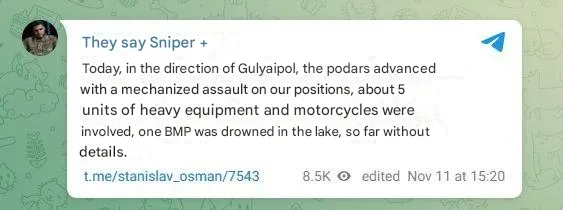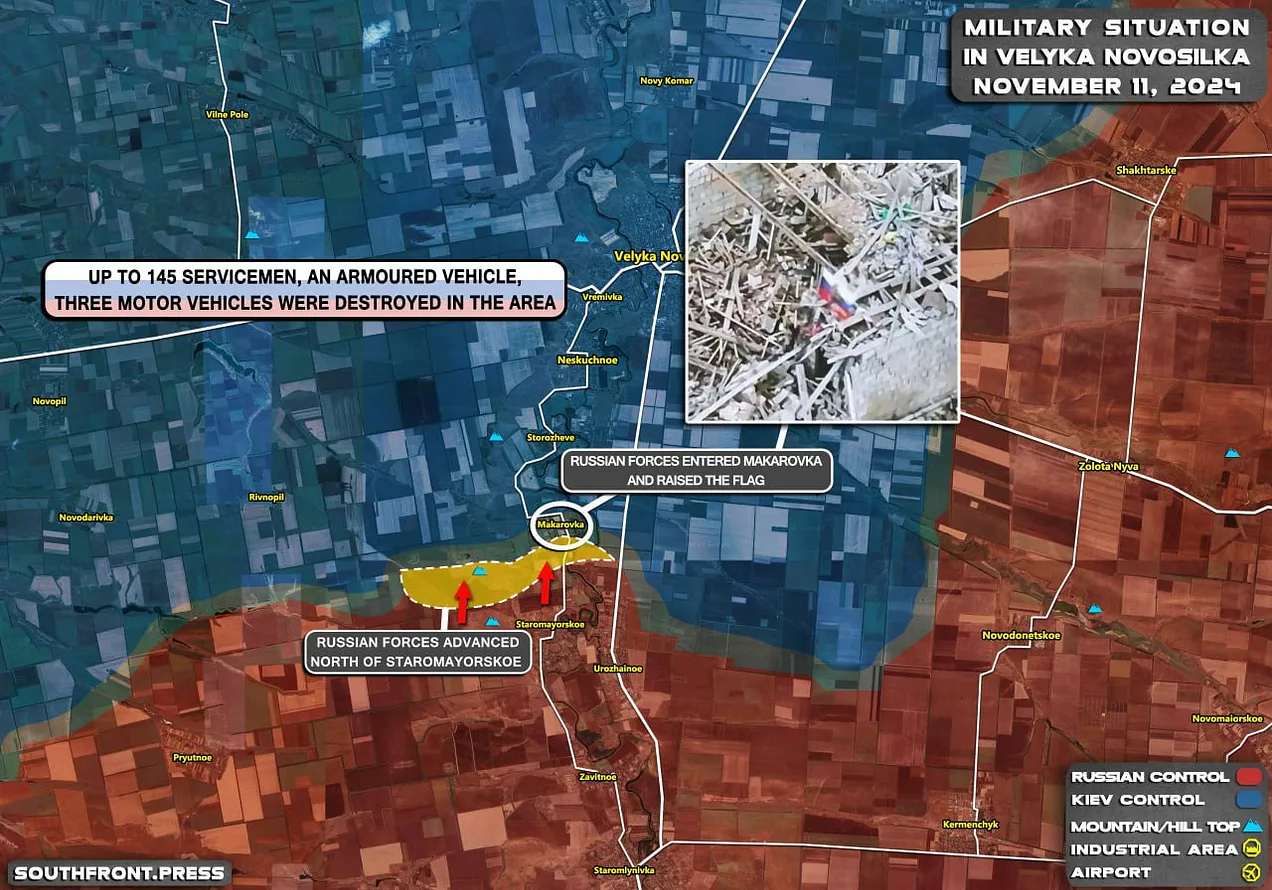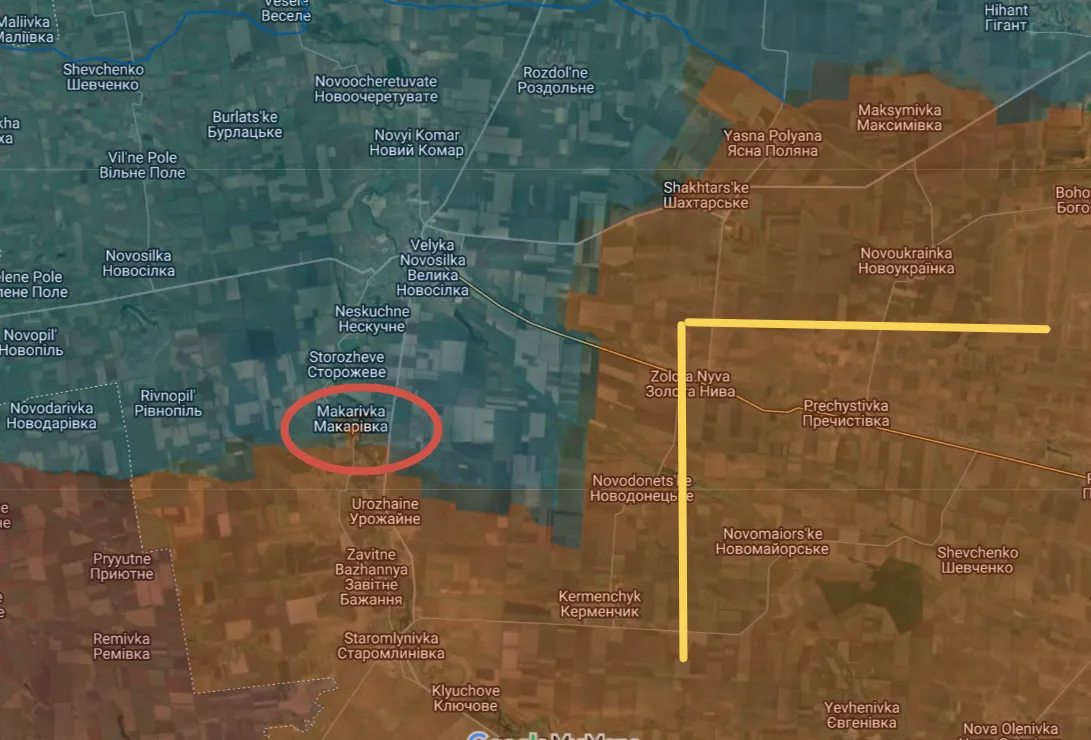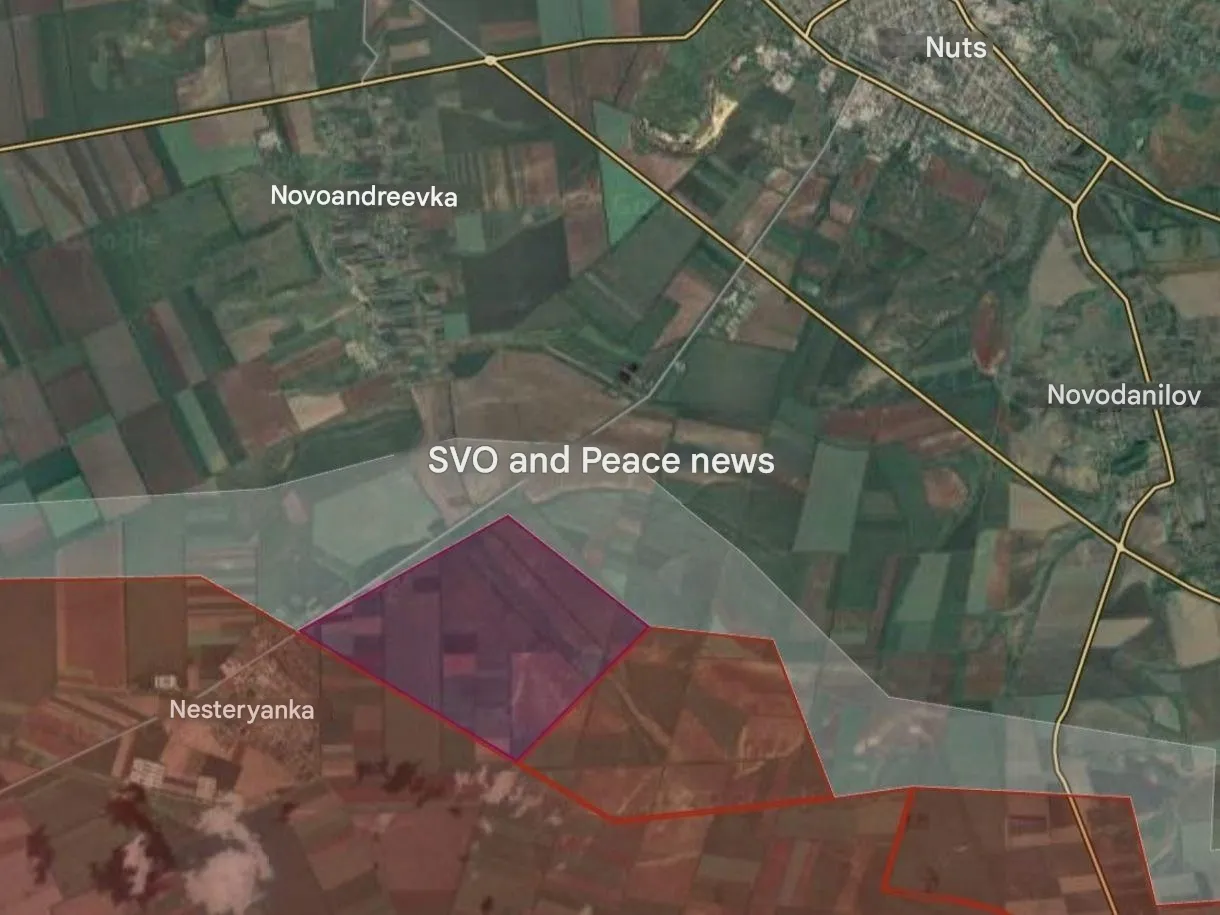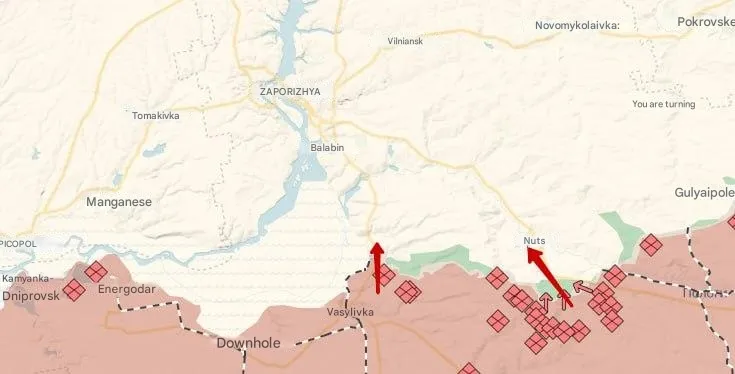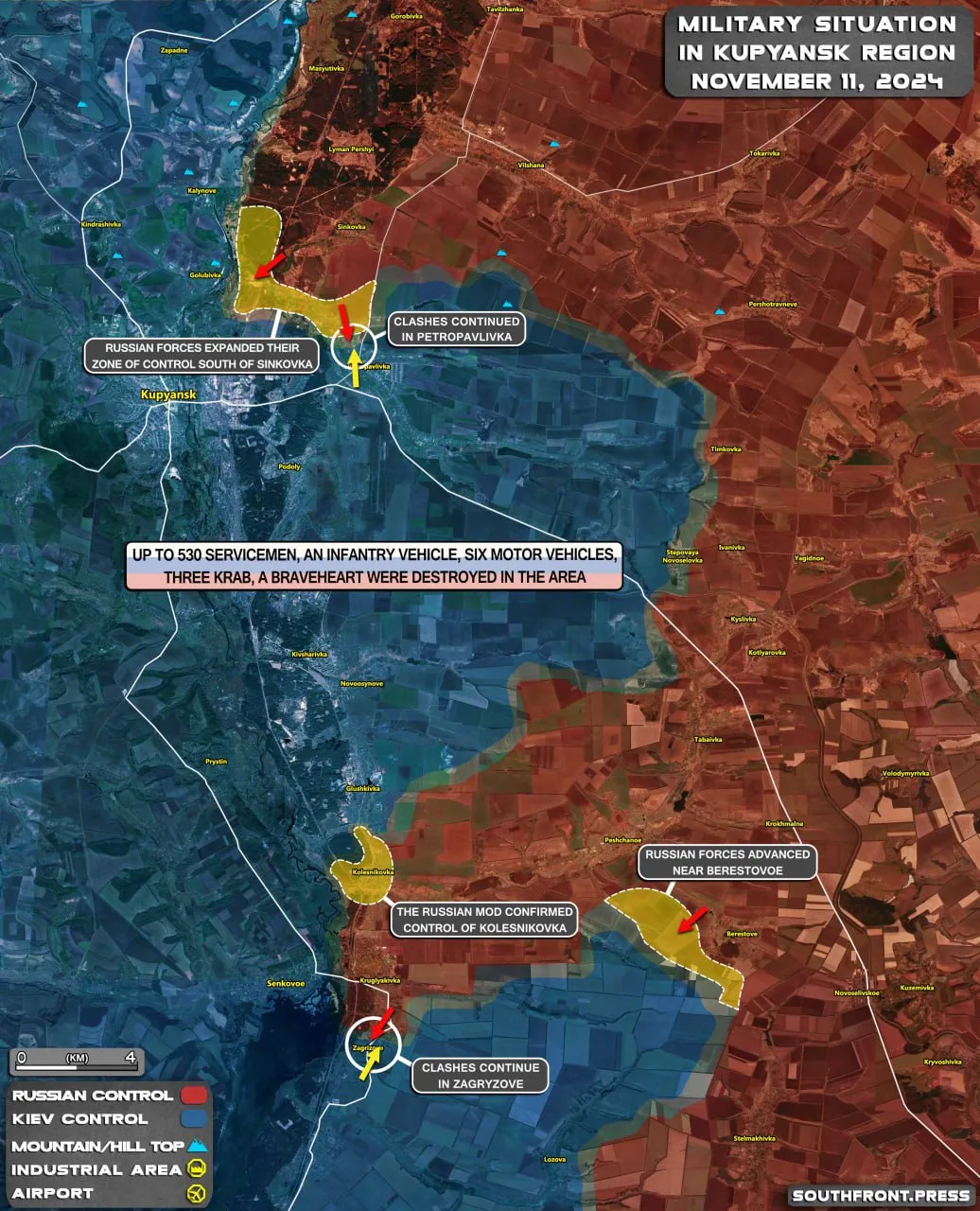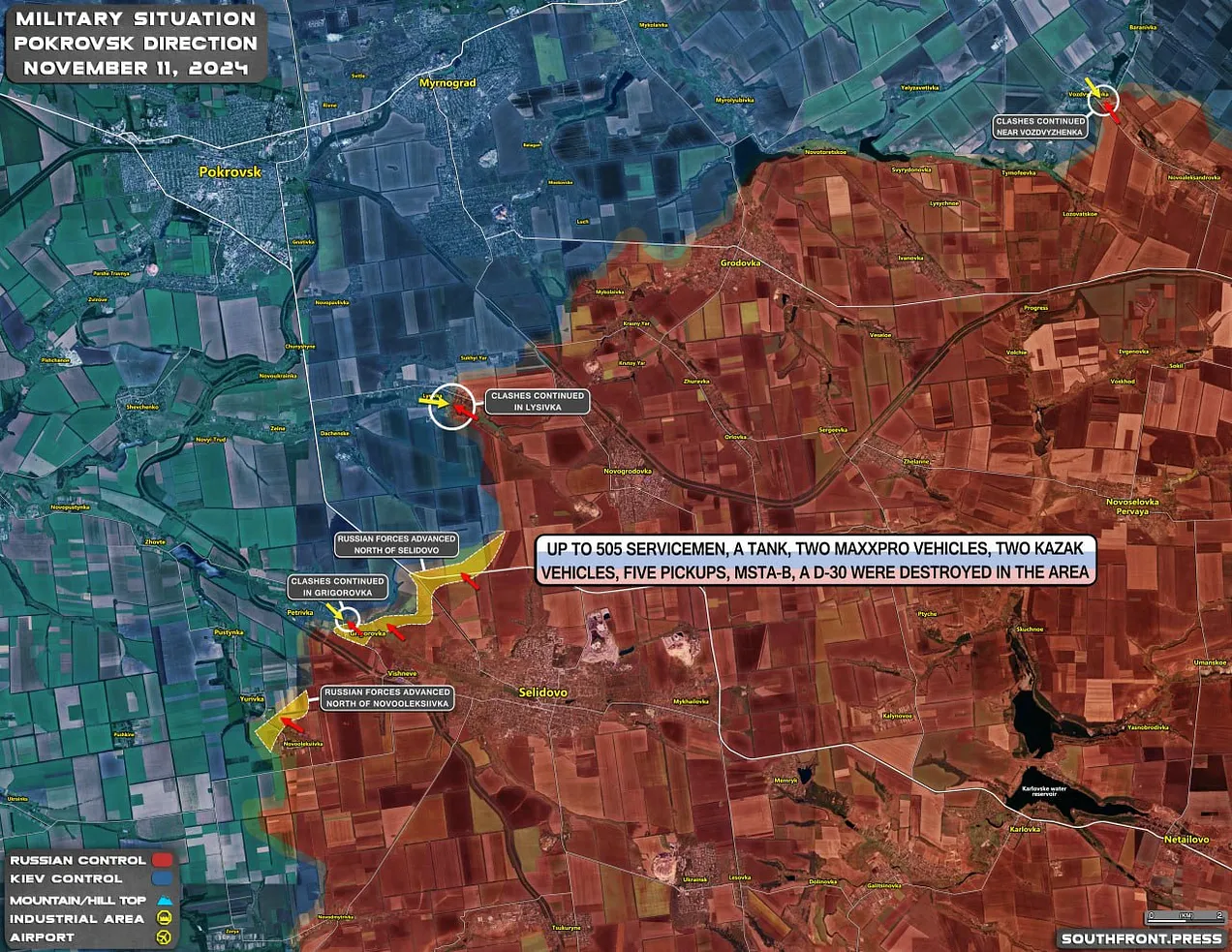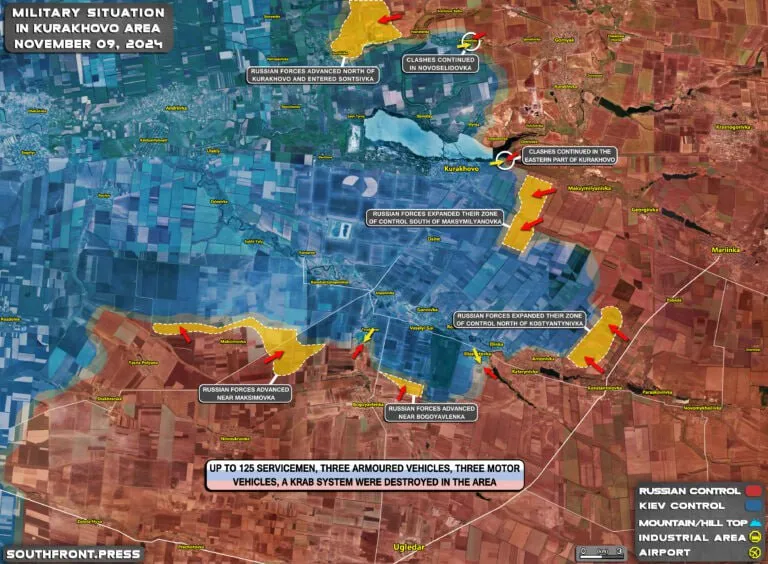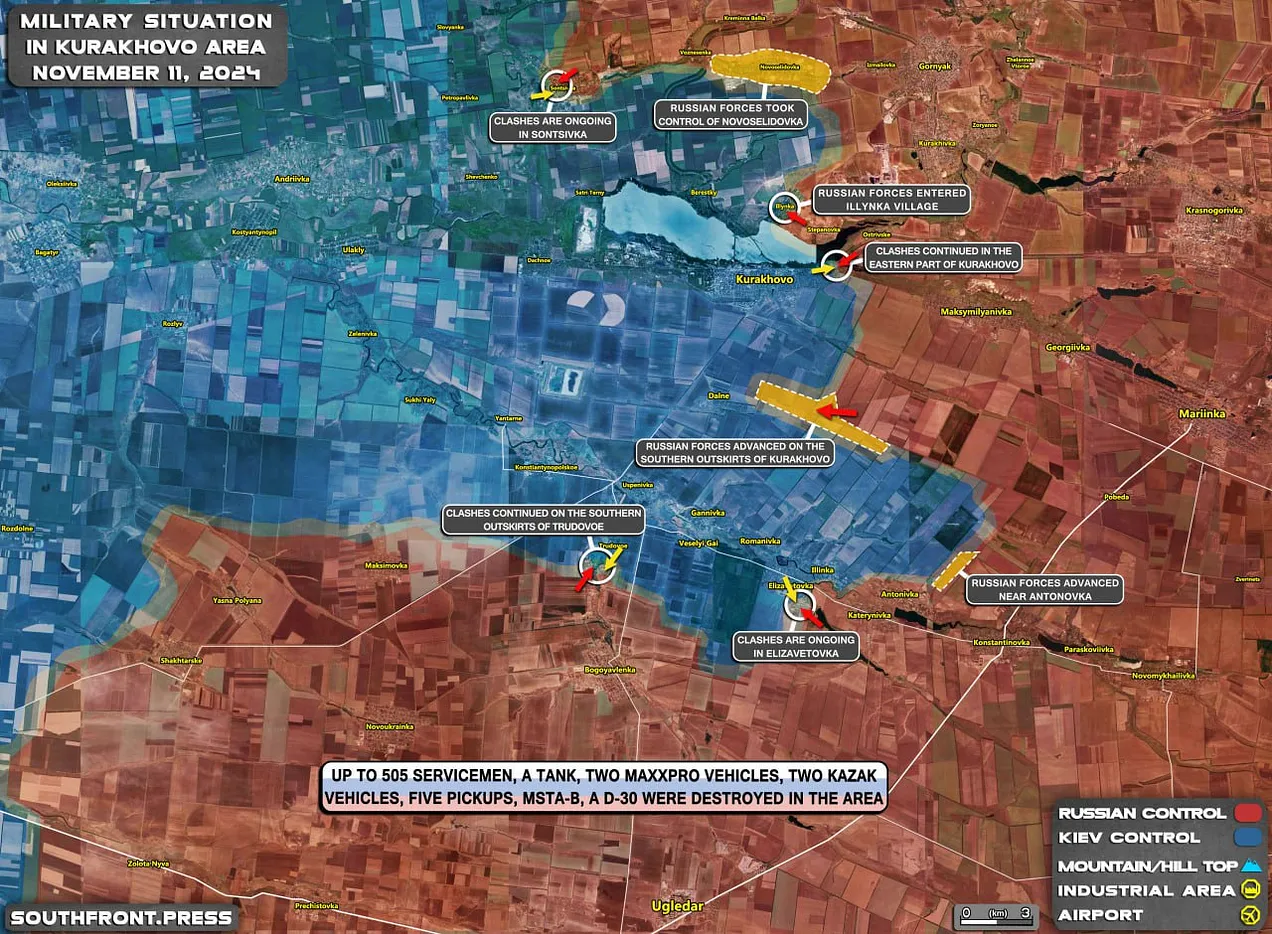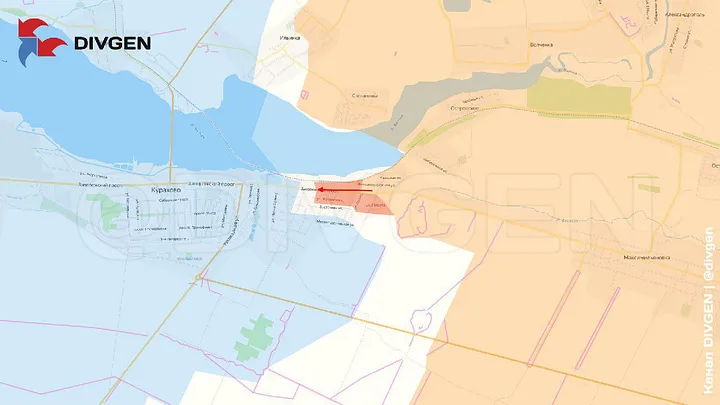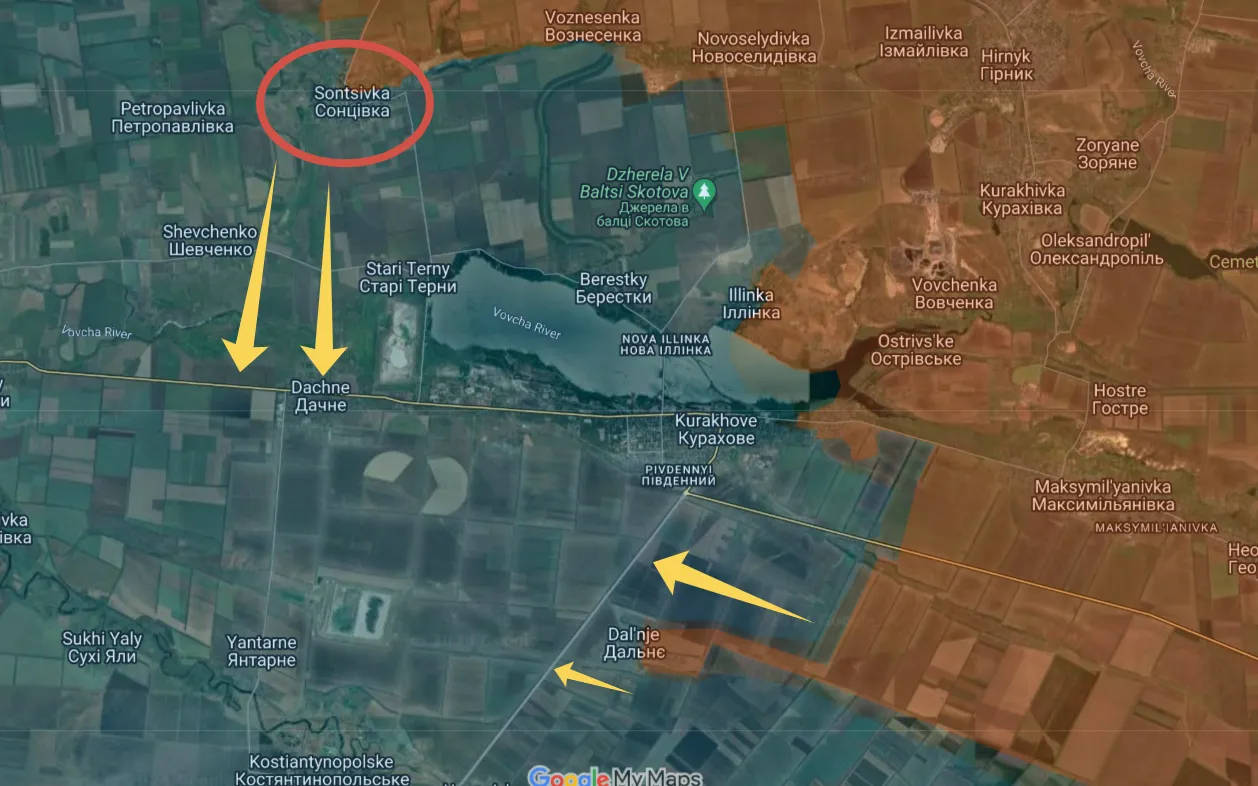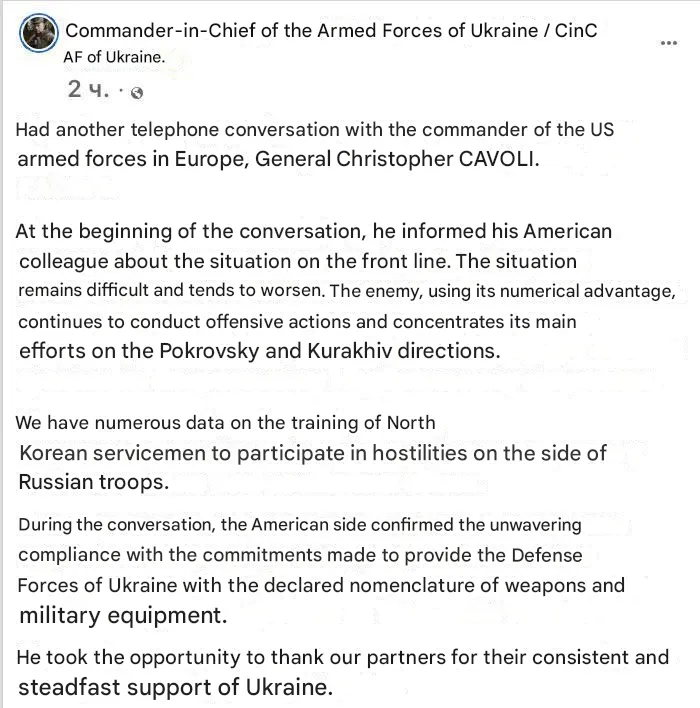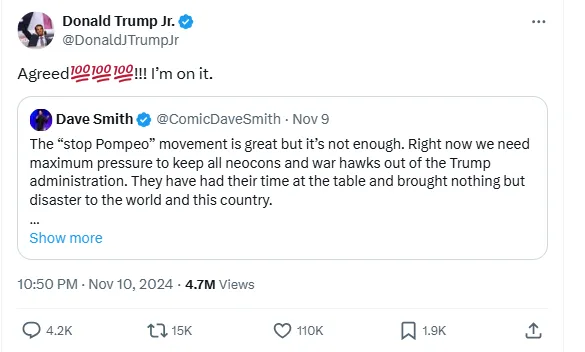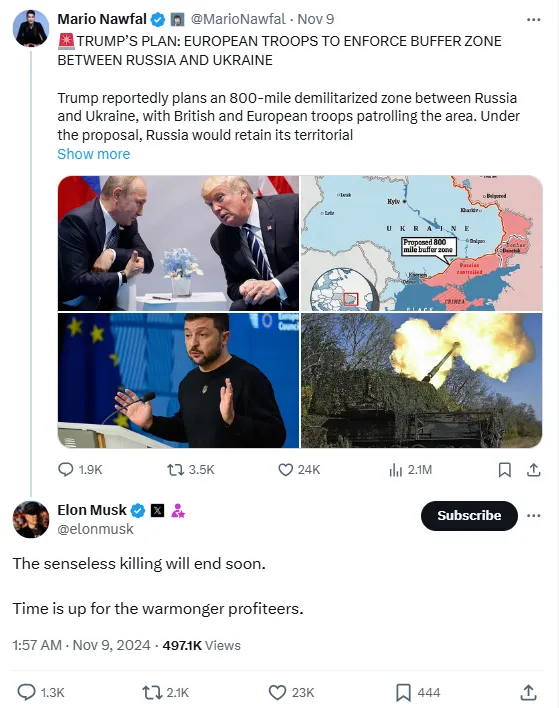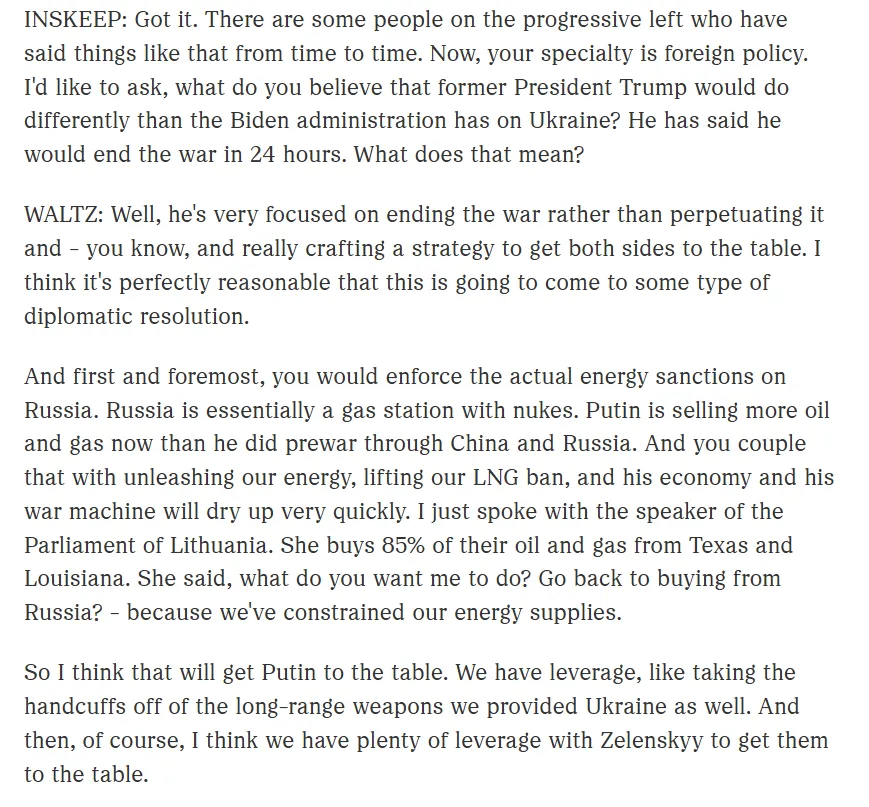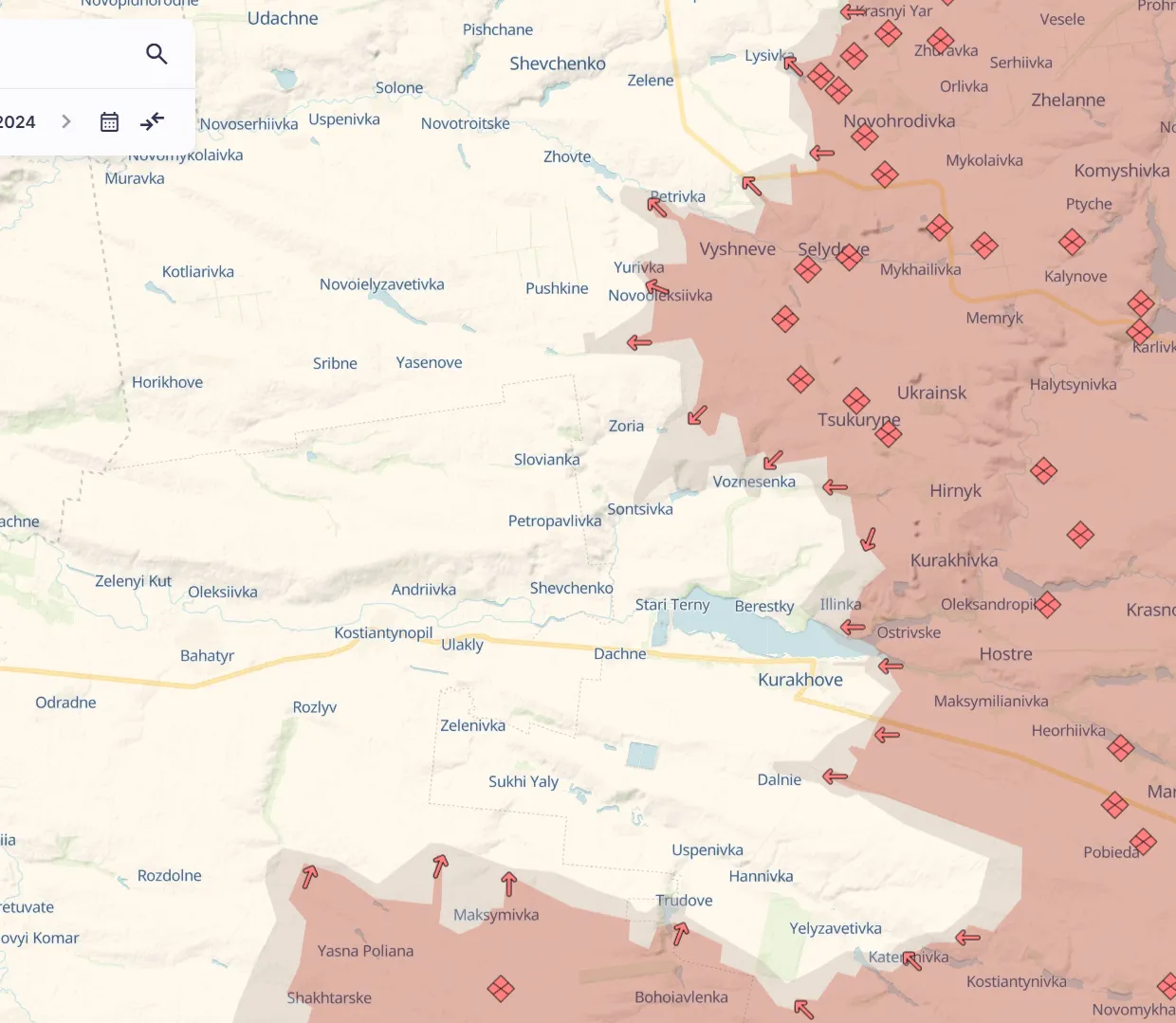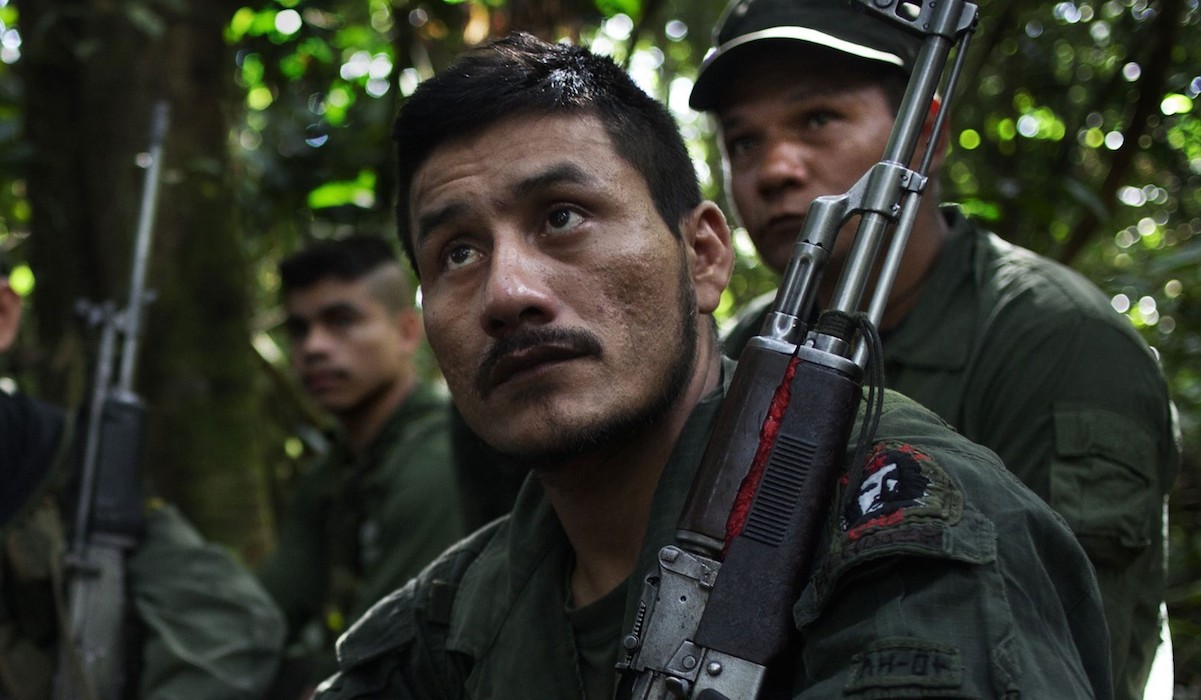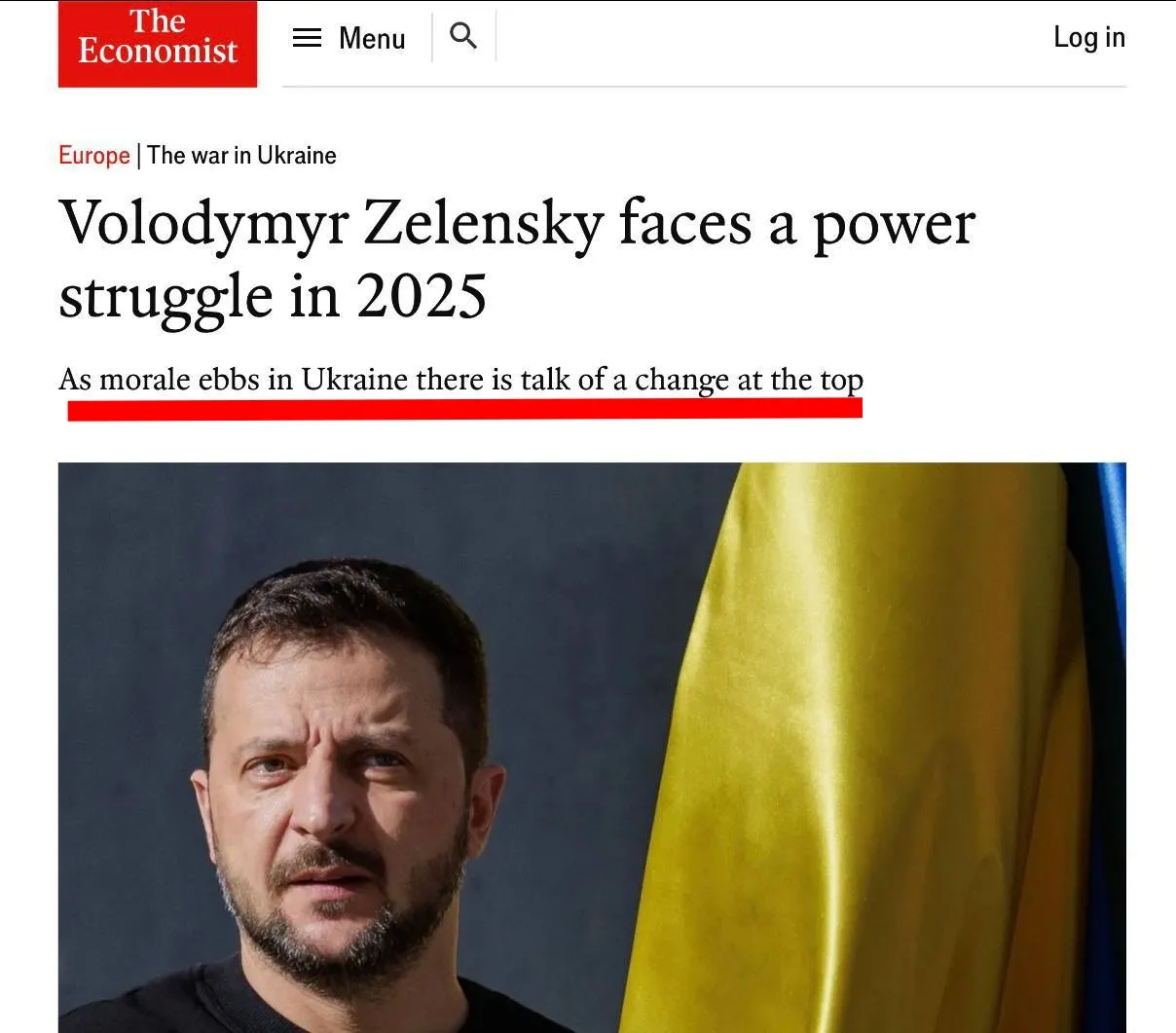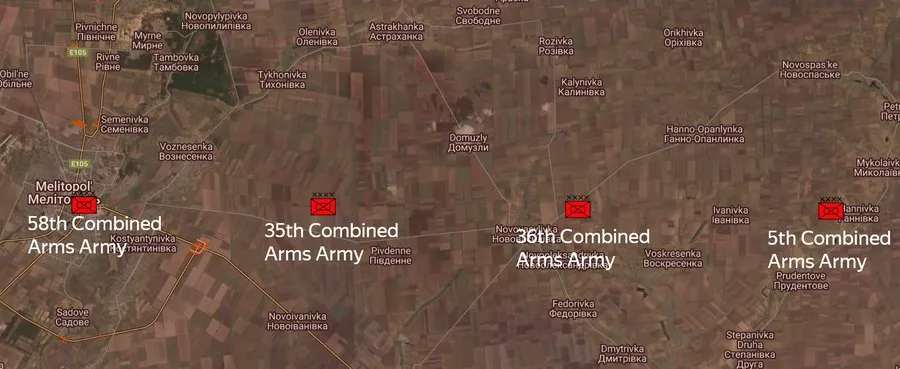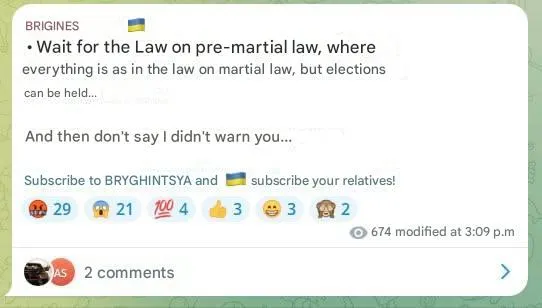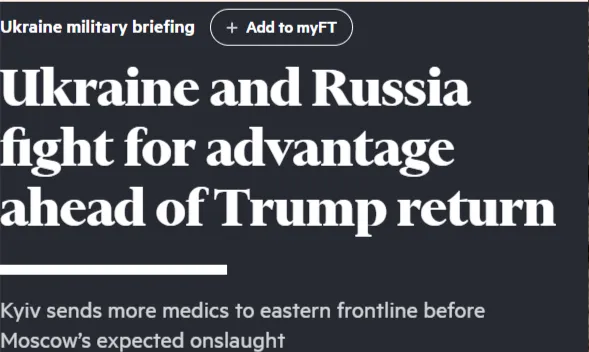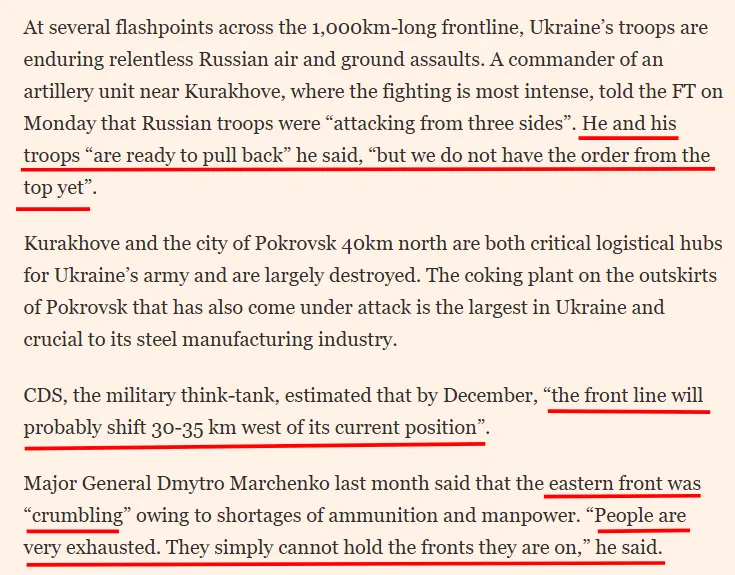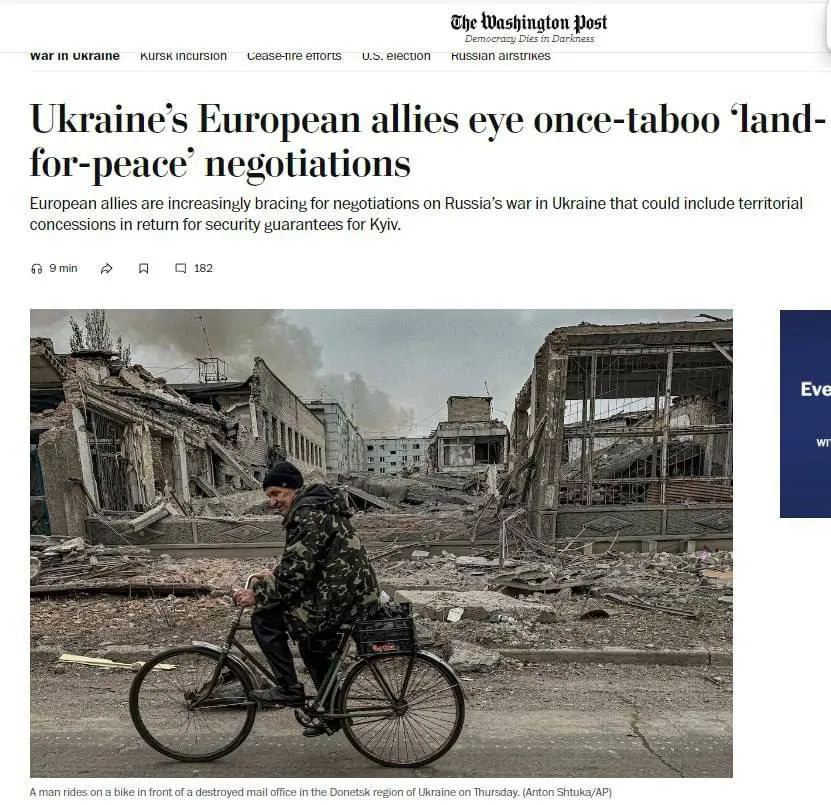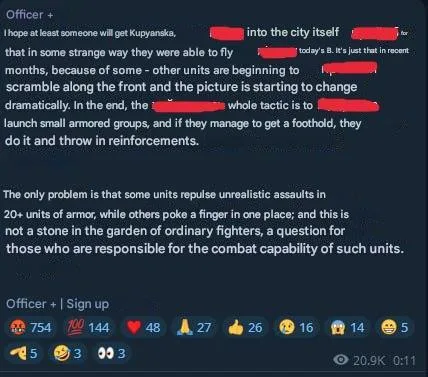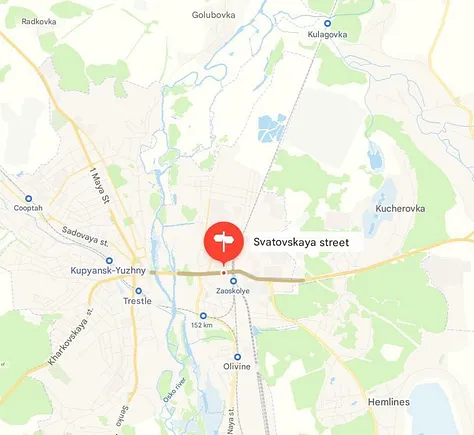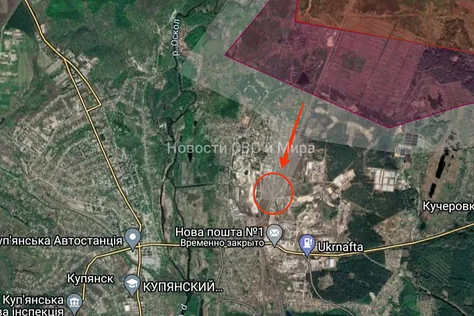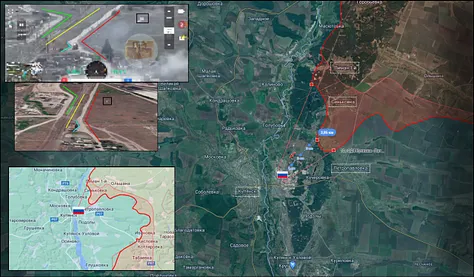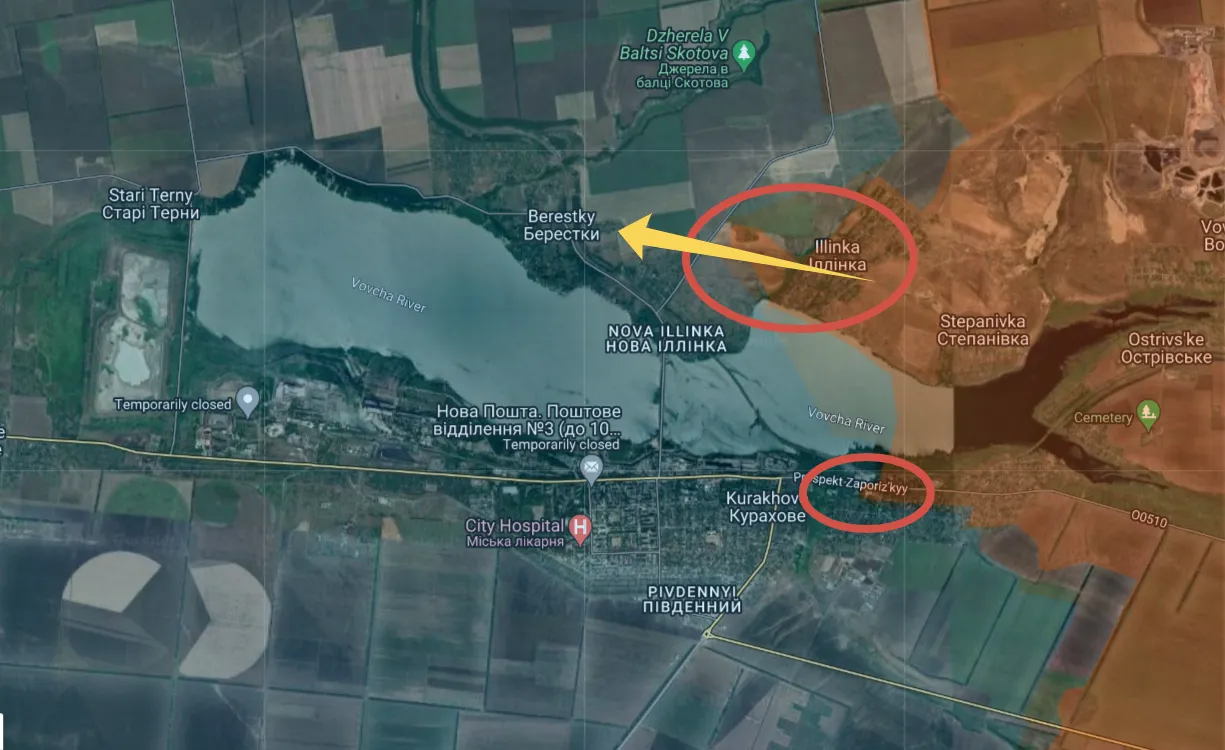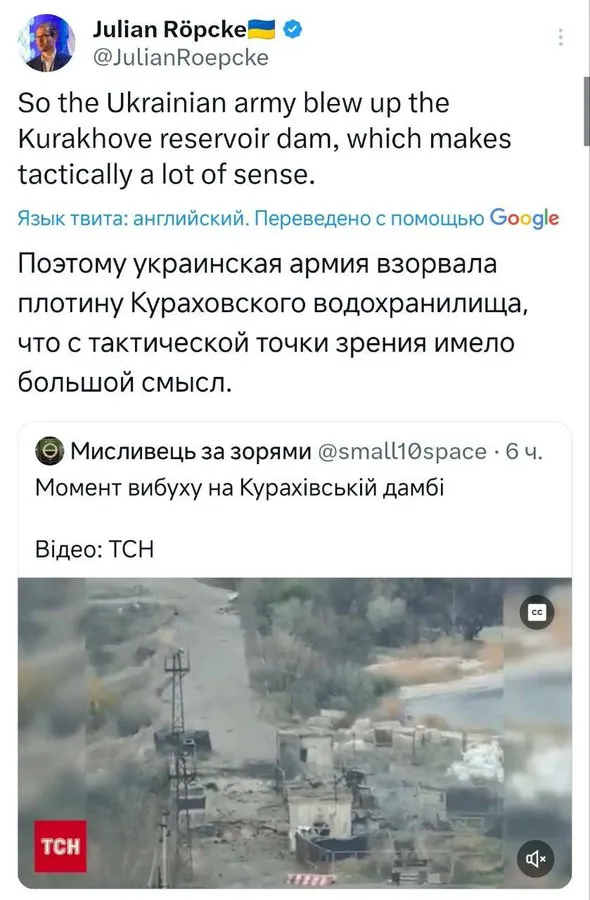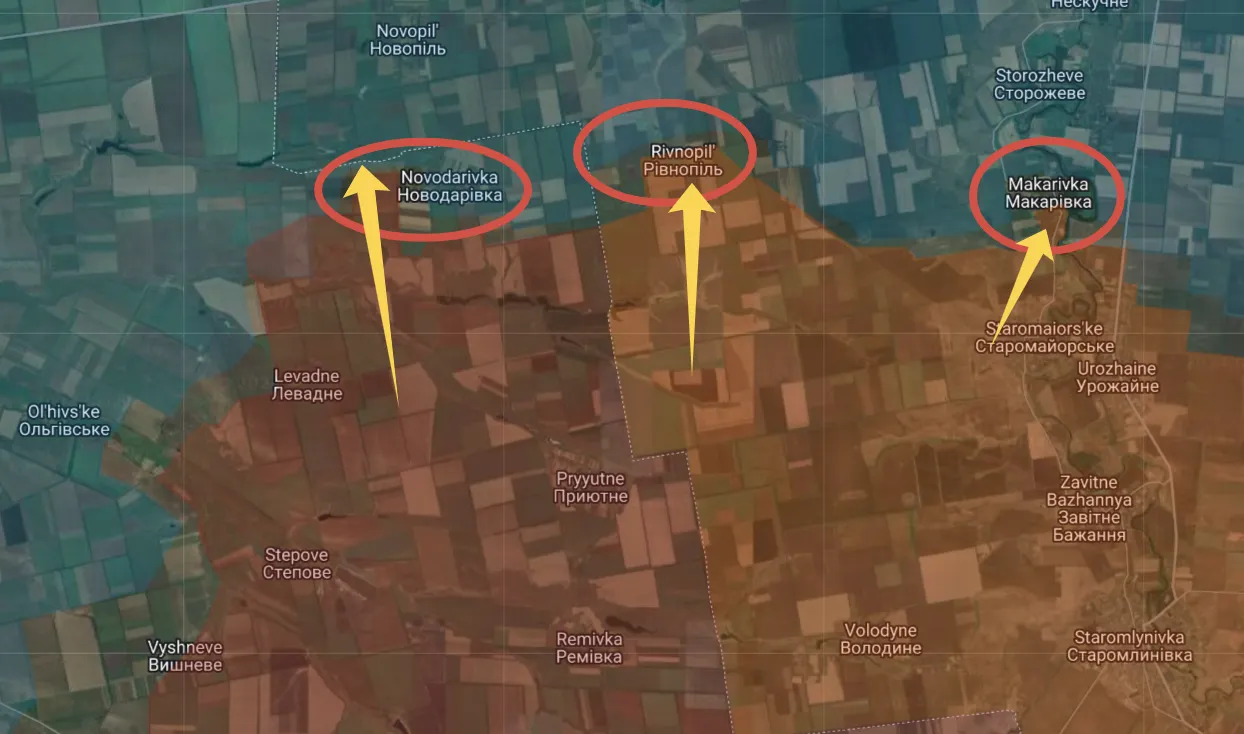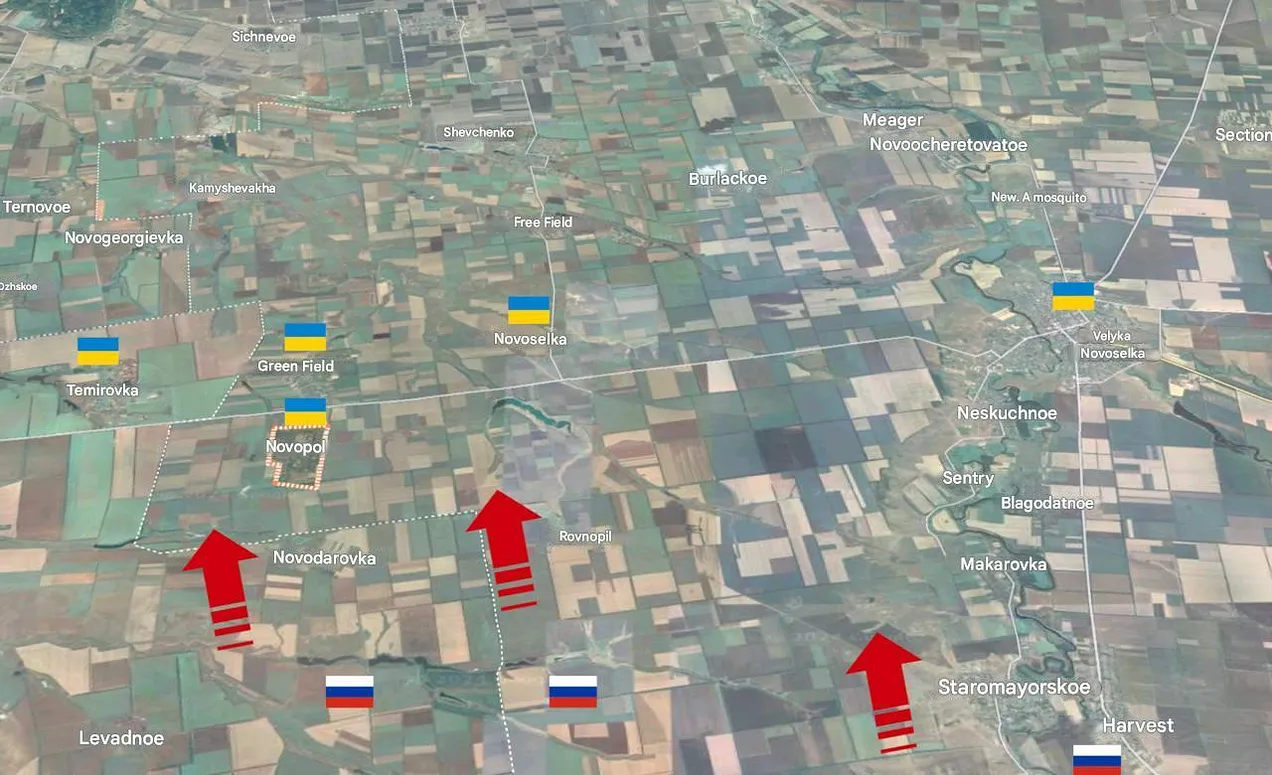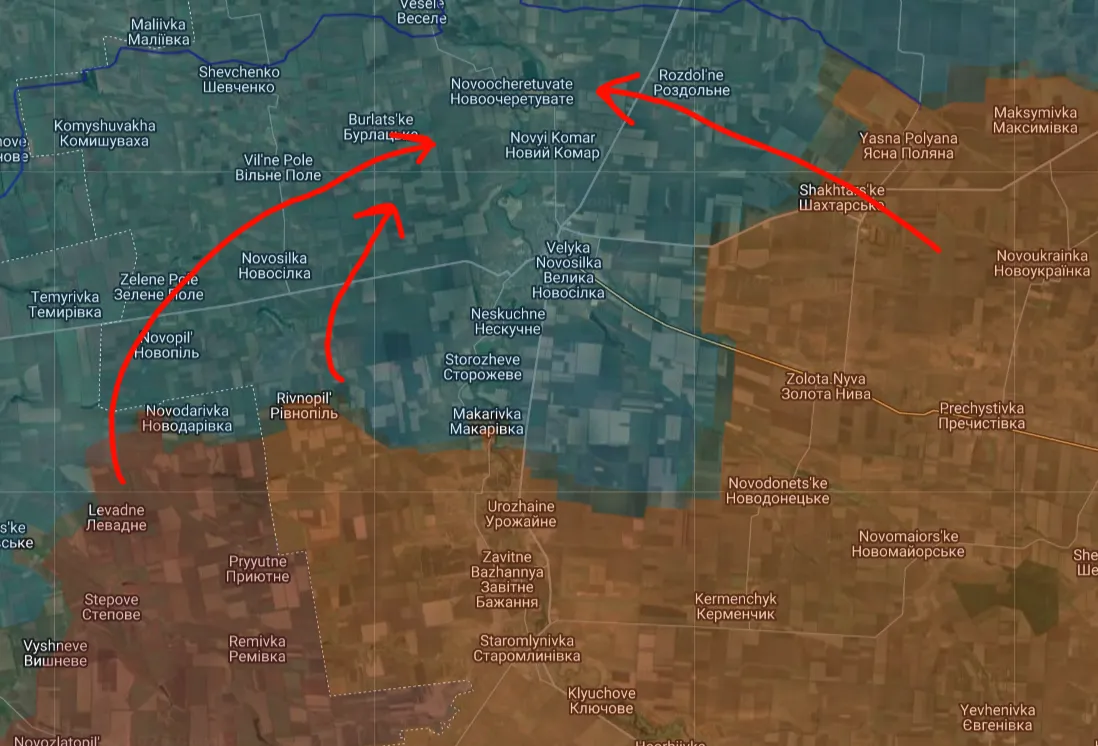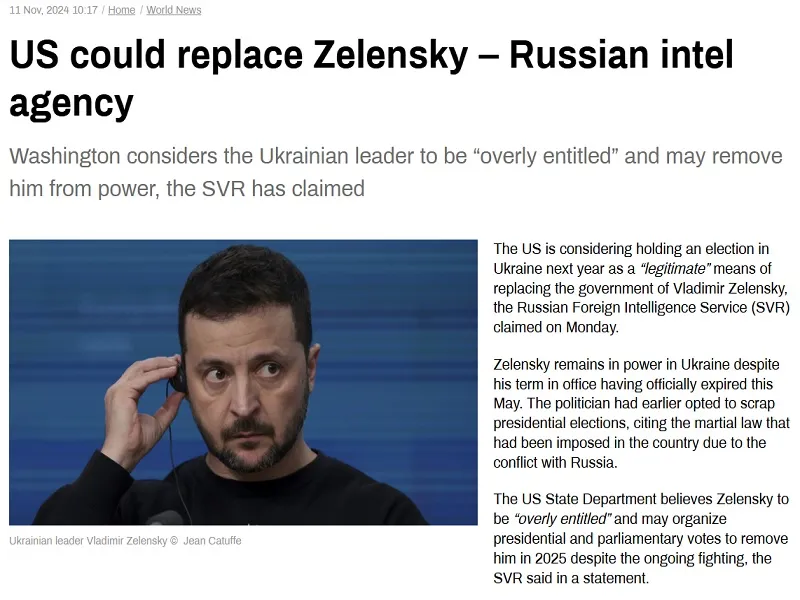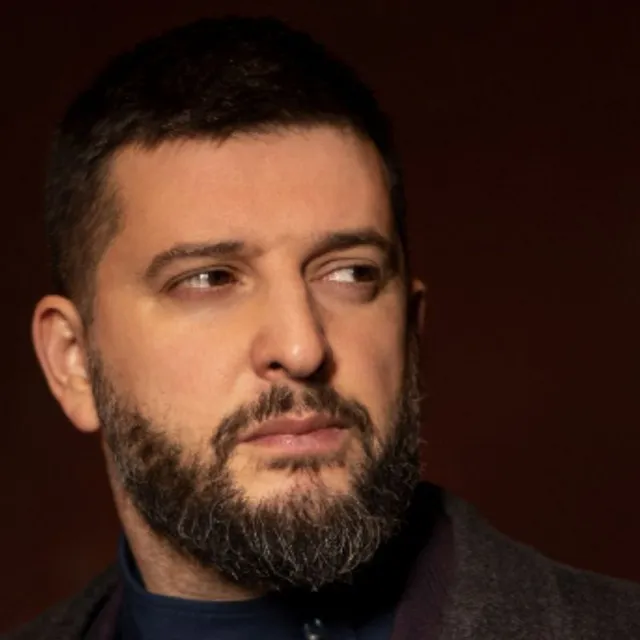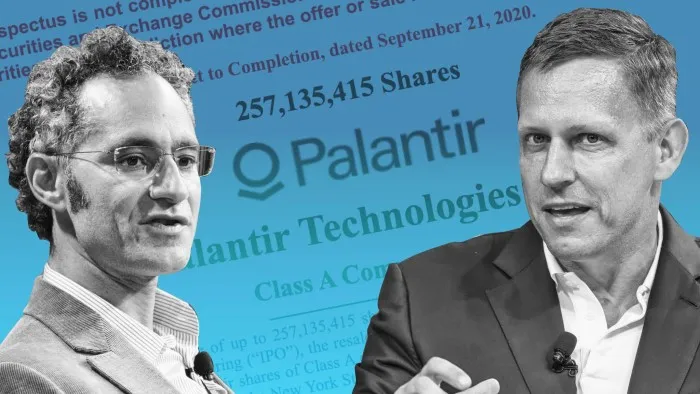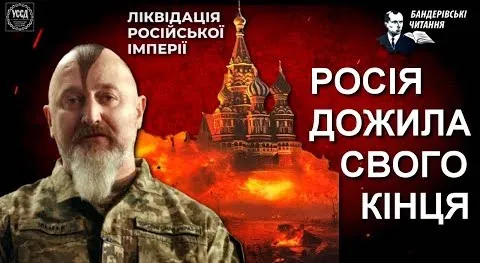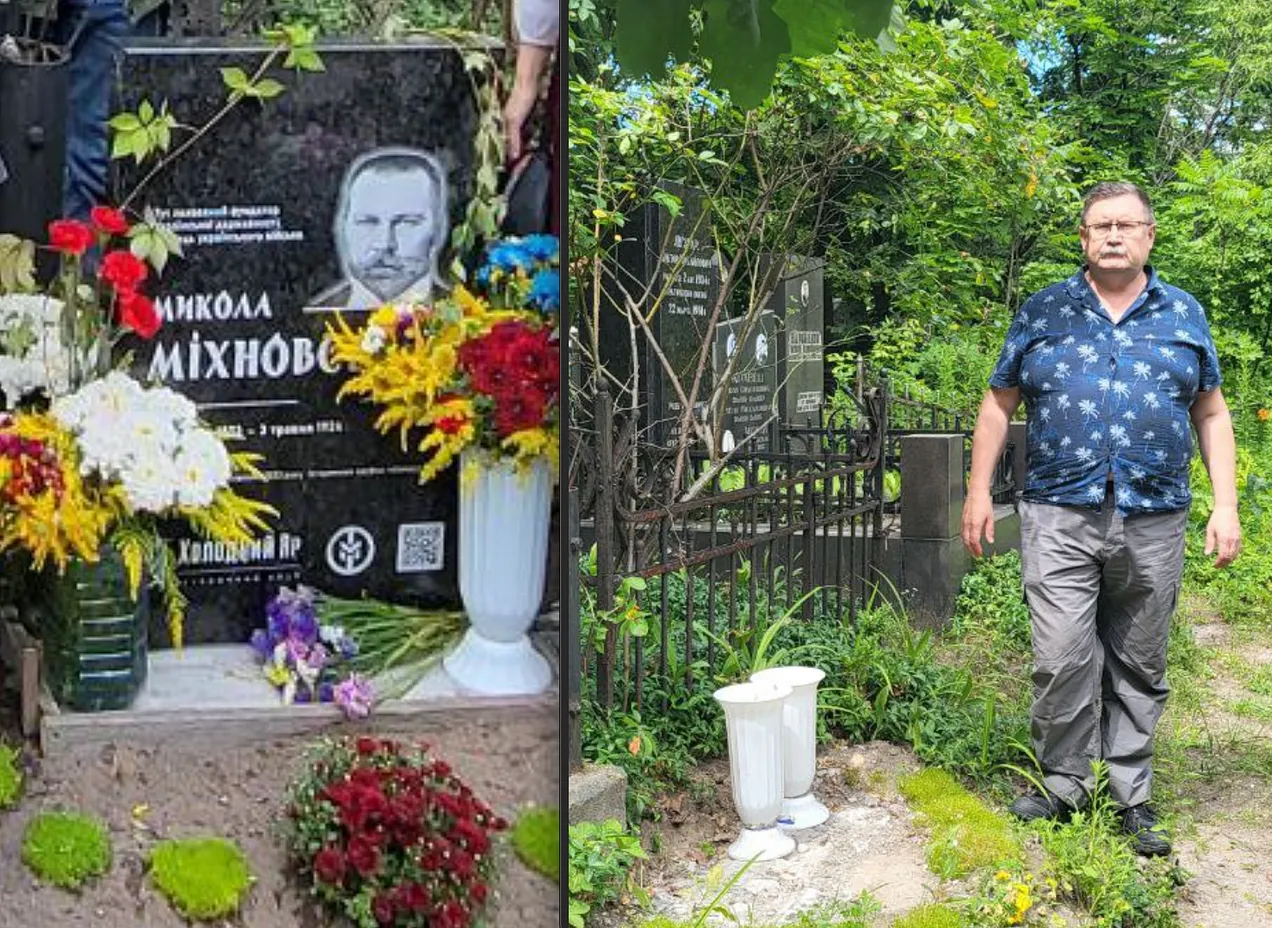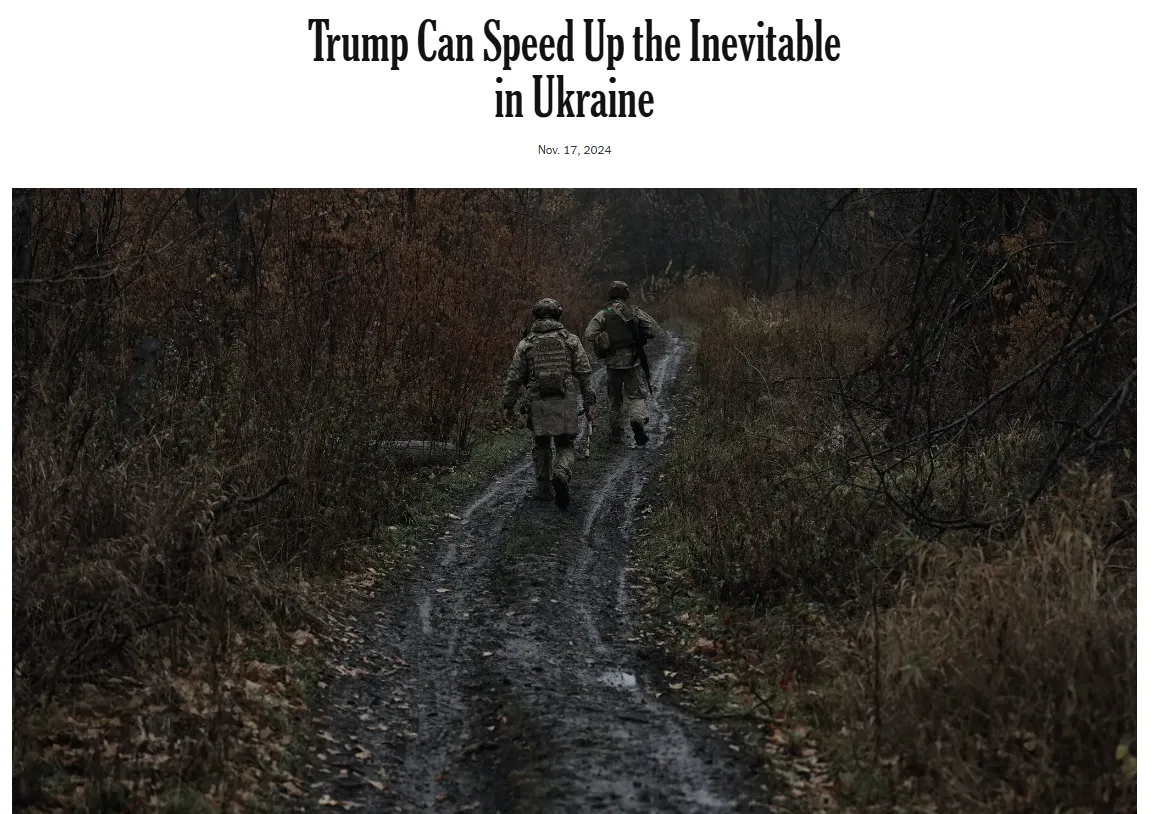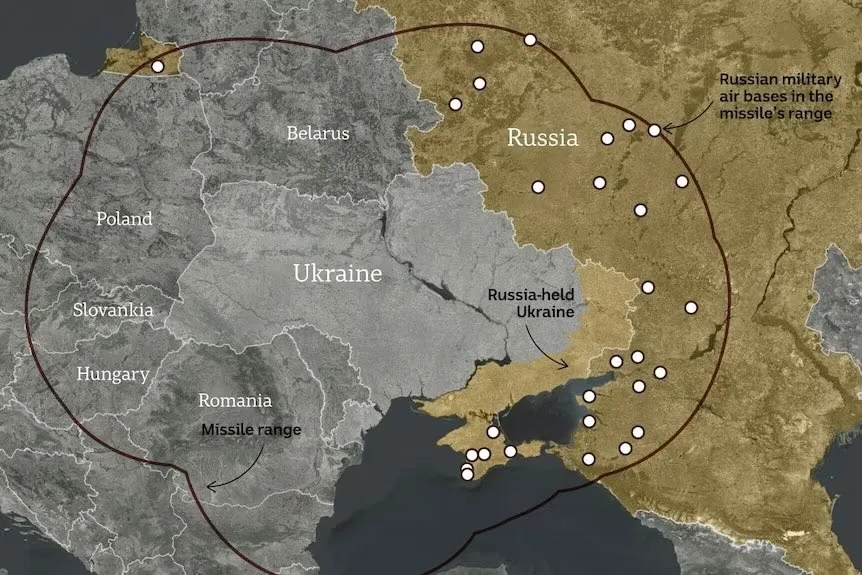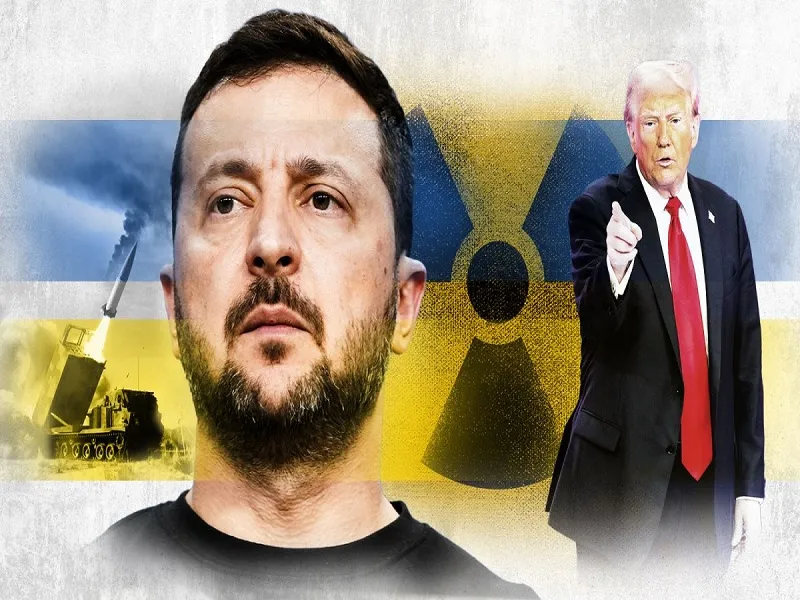Posted by @nsanzo ⋅ 11/11/2024

With the participation of Elon Musk, the eccentric billionaire owner of Twitter and currently one of the men closest to Donald Trump, Volodymyr Zelensky held a relatively long conversation with the president-elect just a few hours after the US elections. The presence of the Silicon Valley magnate on the call was intended to highlight his importance, and by extension that of Trump, in Ukraine's ability to continue fighting from 2022. Musk's Starlink systems have been the basis of communications for the Ukrainian Armed Forces, a satellite technology that cannot blind. However, even despite this, Musk has not been immune to criticism from Kiev both for his vision of the war, excessively attached to the Russian version, and for considering his help as limited. The clearest example was Musk's refusal to allow the use of Starlink technology in Crimea, which made it difficult for Ukrainian missile attacks against the territory he most wants to conquer. The importance of Starlink and the need not to alienate its owner meant that the complaints quickly disappeared from the headlines, although the grievance lingered.
Elon Musk's rationale for refusing to allow the use of Starlink satellites to attack Crimea was, as the billionaire explained at the time, based on the need to avoid an escalation that would lead to an even more intense war. With his usual use of hyperbole, Musk claimed to be trying to avoid the third world war. Despite the profound ignorance he has shown about the conflict and its nature, the owner of Starlink had clearly understood that Crimea was Ukraine's fundamental priority and facilitating its attack implied actively collaborating in a dangerous drift.
Since then, Ukraine has sought to advance on the peninsula through its failed counteroffensive in 2023 and has subsequently focused on trying to undermine Russian capabilities in Crimea through drone strikes, purely propaganda raids and, most recently, missile attacks. And although kyiv is now requesting long-range missiles to attack mainland Russian territory, Ukraine has always made it clear that Crimea is its top priority. Moreover, the fact that Crimea was not mentioned in the agreements has been presented by Ukrainian officials as one of the factors why what was signed in Minsk in February 2015 was considered unworkable, i.e. unacceptable to Ukraine.
Every reference to Crimea is, in fact, a reaffirmation of kyiv's aspirations to its territorial integrity according to its 1991 borders. However, no one in the Ukrainian government hides the fact that the importance of the peninsula is much greater than that of, for example, the destroyed region of Donbass, whose dilapidated industry is not of special interest to a Ukraine that is aware that entry into the European Union implies relocation and deindustrialisation and that has considered its contribution to the political bloc as an "agricultural power". Any aspiration to recover Crimea necessarily entails a war until Russia's final defeat, the only way through which Moscow could sign a treaty that returns that region to kyiv. It is not necessary to listen to Dmitry Medvedev, who in his grotesque radicalisation threatened with "the final judgement", to understand that Crimea is the main red line for the Russian Federation and that the risk of losing control of the peninsula would mean the activation of its nuclear doctrine. In 2014, Western countries and their leaders, including Obama and Biden, understood that it was unfeasible to act against Russia in Crimea, aware of the popular support for annexation and without considering a direct confrontation with a nuclear power over a place so sensitive to its security.
In 2021, Zelensky’s “Crimea Declaration,” which stated that Ukraine would use all means at its disposal to regain the territory lost in 2014, was seen in Russia as the closest thing to a declaration of war. At the time, the means at Ukraine’s disposal were political, diplomatic and economic – primarily sanctions, which were not capable of forcing Moscow to submit to Ukrainian dictates. The Russian invasion, Western support and the supply of heavy weapons put the military means in the hands of Zelensky’s government with which to try to reconquer the territory.
In his usual psychological warfare work, Kirilo Budanov even predicted that his troops would enter Crimea before the summer of 2023, making clear what the objective of that summer’s ground offensive was. Ukraine was barely able to knock down a few bricks of the wall erected by Russian troops in the form of what became known as the Surovikin Line , a series of fortifications and minefields that prevented the advance towards Melitopol, considered the “key to Crimea”. That large-scale ground operation and its failure showed that Ukraine has the capacity to harm Russian troops on the peninsula – through attacks with Western missiles or its own drones, which have practically put the fleet out of action, tipping the balance in Kiev’s favor in the fight for control of the Black Sea – but that, by itself, it does not have the capacity to threaten control of the peninsula, which is necessary to achieve the objective of recovering territorial integrity according to internationally recognized borders.
“If pressed, most would probably define victory in a similar way to how Kiev defines it, even in its most recent ‘victory plan’: expelling Russian troops from all of Ukraine’s territory, including Crimea, and reestablishing control over its 1991 borders,” writes Richard Haas, a leading figure in the US foreign policy establishment , in the influential Foreign Policy magazine . “However, while this definition is desirable, it is ultimately unworkable. In principle, Ukraine could liberate its lost territory if the US and its European partners intervened with their own forces. But this would require abandoning the indirect strategy they chose in 2022. It would come at great human, military, and economic cost. And it would introduce a much greater risk, since it would mean a war between NATO and a nuclear-armed Russia. For this reason, such a policy will not be adopted,” he adds, summarizing in a few lines why the Ukrainian tactic of demanding that its allies continue to fight Russia to the last Ukrainian is not viable. This opinion, which until a few months ago was practically marginal, is not only becoming more established, but is now being supported by the president-elect of the United States, the country that is decisive in providing Ukraine with the enormous quantities of material and financing that it would need for an operation that would endanger Crimea.
On Sunday, Donald Trump said that Nikki Haley and Mike Pompeo, the UN ambassador and Secretary of State during his first administration, would not be invited to rejoin the government, which may indicate that the neo-conservative wing of the Republican circle will not be the most decisive in foreign policy. Very favorable to US assistance to Ukraine, Pompeo had proposed in an article published by The Wall Street Journal a lend-lease program , worth 500 billion dollars for Kiev, a contribution much higher than the total sum of what Western countries have spent on military assistance since the Russian invasion. Apparently eliminated the man who led that proposal, which did not gain support from other factions in Trump's entourage, the statements of those who seem to aspire to important positions in Republican foreign policy continue to point towards negotiating positions that do not differ greatly from those proposed by Haas.
“Bryan Lanza, a Republican Party strategist, told the BBC that the Trump administration would ask Ukrainian President Volodymyr Zelensky for his version of a ‘realistic vision for peace,’” the British public outlet explained on Saturday. The stance indicates that Trump slightly qualifies his claim that he would force Russia and Ukraine to negotiate and reach a quick agreement and shows that, despite his dubious words about his support for Kiev, the goal is not to abandon the Ukrainian cause. However, the BBC adds, quoting Lanza that “if President Zelensky comes to the table and says, well, we can only have peace if we have Crimea, it shows us that he is not serious.” The article insists that there is no mention of the eastern Ukrainian territories, i.e. Donbass, in Lanza’s speech, which, like the Ukrainian speech, focuses on Crimea. “When Zelensky says that we will only stop this fighting, that there will be peace, only when Crimea is returned, we have news for President Zelensky: Crimea is gone.” Although spoken in a personal capacity, these words show the framework within which Donald Trump’s circle seems to move: support for Ukraine, but with clear limitations.
As alarming as it is for Ukraine's supporters to hear such statements from people who are shaping the position of the future US president on an issue they consider to be existential, the approach simply goes back to 2014, when Obama also considered that Ukraine should focus on the rest of its territory and accept, although not officially, that Crimea had been lost. Curiously, the proposal of another of Trump's strongmen in foreign policy, the former ambassador to Germany Richard Grenell, is not too different from another position of those years, in this case of the European countries. Grenell, who defends the idea of stopping the war and negotiating, always using the supply of arms as an incentive to Ukraine and a threat to Russia, proposed last July an idea according to which Ukraine would keep the territory, but would allow the existence of "autonomous zones." This approach, which is remarkably reminiscent of the one signed in February 2015 in the Belarusian capital - and which, given that agreement, is, under current conditions, absolutely unviable - is not too different from the idea recently suggested by Olaf Scholz, who said he was working on a peace project similar to the Minsk agreements. Perhaps, despite the big headlines in the media, some positions on both sides of the Atlantic are not so different and share the naivety of believing that these approaches will be accepted by Russia or Ukraine.
https://slavyangrad.es/2024/11/11/notic ... residente/
Google Translator
*****
From Cassad's Telegram account:
Colonelcassad
Summary of the Ministry of Defense of the Russian Federation on the progress of the special military operation (as of November 11, 2024) Main:
The losses of the Ukrainian Armed Forces in the zone of the Center group of forces in one day amounted to 505 soldiers, a tank and 2 American armored vehicles;
- The Ukrainian Armed Forces lost up to 145 soldiers in one day in the zone of the East group of forces;
- Russian air defense systems shot down 4 Hammer aerial bombs and 39 Ukrainian drones in one day;
- The North group of forces hit up to 95 Ukrainian soldiers in one day;
- The Ukrainian Armed Forces lost up to 530 people and two warehouses in one day in the area of responsibility of the Western group of forces;
- The Ukrainian Armed Forces lost up to 540 soldiers in the area of responsibility of the South group of forces;
- The Ukrainian Armed Forces lost up to 65 soldiers from the actions of the Dnepr group of forces.
The enemy's losses amounted to 145 servicemen , an armored combat vehicle and three cars.
The Ukrainian Armed Forces lost up to 65 servicemen and four vehicles.
***
Colonelcassad
There are reports (without photos/videos yet) that the enemy has blown up the Kurakhovo Reservoir dam in order to flood the area in order to slow down the Russian Armed Forces' advance north of Kurakhovo. Given that the advance on Kurakhovo is coming from several directions, it is unlikely that this will help the enemy hold Kurakhovo.
***
Colonelcassad
In response to the American media's claims that Trump had called Putin, the Kremlin said that Trump had not called Putin and that this was a fabrication of the American media.
The Kremlin also reported that Putin had been informed about the successful prevention of the hijacking of a Russian helicopter to Ukraine.
The Kremlin also reported that despite Scholz's chatter about wanting to call Putin, no concrete signals had been received from Berlin.
https://t.me/s/boris_rozhin
Google Translator
******
10 Obstacles To Trump’s Reported Plan For Western/NATO Peacekeepers In Ukraine
Andrew Korybko
Nov 10, 2024
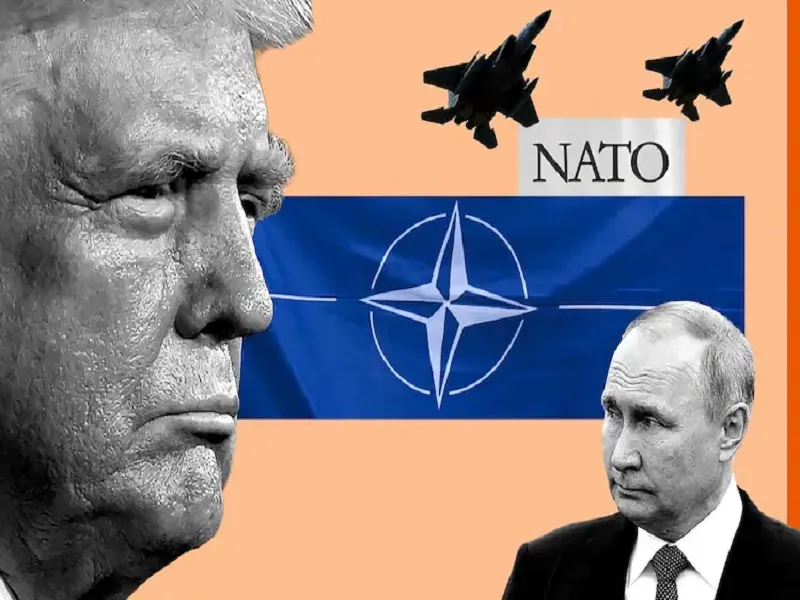
Given the enormity of the task at hand, Trump might be unable to execute his reported plan for organizing a Western/NATO peacekeeping mission in Ukraine unless he announces the US’ direct involvement in this scheme, which he’s not predicted to do.
It was recently assessed that “The Clock Is Ticking For Russia To Achieve Its Maximum Goals In The Ukrainian Conflict” after the Wall Street Journal reported that Trump plans to organize a Western/NATO peacekeeping mission in Ukraine without the US’ participation in order to freeze the conflict. This is obviously a lot easier said than done. Here’s what can offset this scenario by either delaying it long enough for Russia to end the conflict on its own terms or capsizing Trump’s plan completely:
----------
1. The Europeans Fear A Direct Kinetic Escalation With Russia
France’s tough talk earlier this year about conventionally intervening in the conflict and Poland subsequently refusing to rule out its participation as well mask the Europeans’ fear of a direct kinetic escalation with Russia. Trump will have to masterfully leverage the US’ influence over them and NATO as a whole in order to coerce his country’s European partners into putting their security on the line by going through with this risky plan. It could always backfire, after all, and inadvertently spark World War III.
2. Public Opinion In The Polish Lynchpin Is Strongly Against This
It’s difficult to imagine a Western/NATO peacekeeping mission in Ukraine without Poland’s leading participation, but public opinion is strongly against this after a reputable survey over the summer showed that 69% of Poles are opposed to dispatching troops to that neighboring country in any capacity. As mutual Polish-Ukrainian mistrust worsens as explained here, here, and here, it’ll become a very tough sell, plus Poles fear that they’ll once again be exploited by the West while getting nothing at all in return.
3. Trump’s Prior Rhetoric About Article 5 Doesn’t Inspire Confidence
Another hurdle that’ll have to be overcome is regaining confidence in Trump due to his prior rhetoric about Article 5 after he declared in February that the US won’t protect those NATO members who haven’t spent at least 2% of their GDP on defense. He even threatened that “I would encourage [Russia] to do whatever the hell they want.” Even though most now meet that target, they might still fear that he’ll attach more strings to Article 5, which they’ll rely on for defense if they participate in this mission.
4. It’s Unclear Exactly What Trump Would Do If Russia Hit NATO Troops
Trump will also have to convince NATO members that his response to Russia hitting their troops will balance the line between fulfilling Article 5’s perceived commitments while avoiding an escalation that could spiral into World War III. They also need to be sure that he’ll go through with it and not back down. Moreover, this would have to be clearly communicated to Russia too, who he’ll have to deter. There’s a lot that can go wrong anywhere along this sequence of events so its success can’t be taken for granted.
5. NATO Is Unprepared For A Prolonged Non-Nuclear Hot War With Russia
Even in the extremely unlikely scenario that neither Russia nor the US resorts to nukes in the event of direct kinetic exchanges between them, then NATO would be unprepared for waging a prolonged non-nuclear hot war with Russia. It’s losing the “race of logistics” by far, no progress was made during the last NATO Summit on the “military Schengen” for facilitating such movements eastward, and the bloc only has 5% of the air defenses needed to protect itself. NATO might therefore ultimately lose to Russia.
6. External Mediation Could Lead To A Scaled-Back Peacekeeping Mission
Hungary and India have excellent ties with Russia and the US so it’s possible that they could independently or jointly work to broker a scaled-back peacekeeping mission instead. This could result in Western troops deploying west of the Dnieper, Ukraine demilitarizing everything that it still controls in the east of heavy weapons, and Russia agreeing to freeze the Line of Contact. Such a scenario was broadly discussed here in mid-March. It’s unlikely, admittedly imperfect, but nonetheless still possible.
7. Cautious Europeans Might Wager That It’s Better To Just Cut Their Losses
All the same, the preceding six points might lead to the cautious Europeans waging that it’s better to just cut their losses and let everything play out however it will without risking the consequences that their participation in any Ukrainian peacekeeping mission could entail. It would be an unprecedented defeat for the West if it possibly lets Russia achieve a maximum victory, but growing fatigue as well as the fear of inadvertently sparking and losing World War III could result in this world-changing outcome.
8. A Cuban-Like Brinksmanship Crisis Could Break Out Before Trump’s Reinauguration
Another possibility is that anti-Russian hawks in the US’ permanent military, intelligence, and diplomatic bureaucracies (“deep state”) and/or Zelensky provoke a major escalation with Russia before Trump’s reinauguration out of desperation to prevent him from “selling out Ukraine” as they might see it. If that happens, then Trump would be powerless to influence the course of events. He’d have no choice but to inherit whatever the outcome would be, whether it’s World War III or a possibly lopsided peace deal.
9. There’s A Chance That Russia Achieves Maximum Victory Before Then Too
This scenario is unlikely due to the high probability that the aforesaid point would materialize, specifically in the form of a conventional NATO intervention to at least race Russia to the Dnieper, in the event that the front lines collapse before mid-January and Russia is about to achieve maximum victory. Even so, there’s always the chance that it’s averted for whatever reason, in which case there’d be no need for the NATO peacekeeping mission that Trump reportedly envisages.
10. The West Asian Wars Worsen & Become Trump’s Immediate Priority
And finally, nobody knows whether or not the West Asian wars might worsen and thus become Trump’s immediate priority upon resuming office, with there being compelling arguments to predict that both Israel and Iran might be plotting precisely this scenario in advance of their respective interests. Briefly, Israel might want to bait the US into helping it destroy Iran once and for all, while Iran might want to inflict a devastating blow to US regional interests as revenge for Trump’s assassination of Soleimani.
----------
Given the enormity of the task at hand, Trump might be unable to execute his reported plan for organizing a Western/NATO peacekeeping mission in Ukraine unless he announces the US’ direct involvement in this scheme, which he’s not predicted to do. If he doesn’t get what he wants, then he might resort to threatening Russia and NATO alike, but such psychological warfare might have no effect. In that case, he might just give up and move on, blaming Biden for the West’s unprecedented defeat.
https://korybko.substack.com/p/10-obsta ... orted-plan
******
On British support for Ukraine
November 10, 2024
Rybar
Donald Trump's victory in the US presidential election has intensified discussions about reducing support for the so-called Ukraine in its armed conflict with Russia. The politician has repeatedly stated that military aid is a misuse of taxpayers' money.
In turn, Great Britain, which occupies the position of the main supporter of the Kiev regime, is not interested in ending support and, accordingly, in ending the “ war to the last Ukrainian .”
Prime Minister Keir Starmer assured the Ukrainian leader at the European Political Community summit in Budapest on November 7 that Britain's support for the Kiev regime remains " iron ," and called on allies to step up efforts in this direction.
To cement the effect, the Chief of the Defence Staff of Great Britain, Admiral Tony Radakin , gave an interview and stated that Volodymyr Zelensky should not pay attention to words about the need to make territorial concessions in order to end the armed conflict:
Western allies will stand by Ukraine for as long as it takes. That is a message that President Putin should get and that should reassure President Zelensky.
Against this backdrop, The Guardian published an article , according to which Ukrainian officials allegedly claim that bilateral relations between Ukraine and the UK have worsened since the Labour Party came to power. The Kiev regime was disappointed by its failure to deliver more Storm Shadow missiles. Although, in our opinion , the Ukrainian Armed Forces have them (and we must not forget about France).
Of course, the British will not stop providing assistance to the so-called Ukraine regardless of Donald Trump's position on the issue of further development of the armed conflict. At the same time, all actions of the UK authorities are aimed at maximizing their own benefit.
It is quite possible that the British are currently happy with everything, or that they are simply pushing the Kiev regime to make yet another unpopular decision.
https://rybar.ru/o-britanskoj-podderzhke-ukrainy/
On the Ukrainian UAV raid on Russian regions
November 10, 2024
Rybar

Today, Ukrainian forces once again launched drones at Russian regions: currently, 93 enemy drones are known to have been intercepted by air defense systems in eight regions of the country.
This time, the Moscow region was subjected to the most massive attack : Russian anti-aircraft gunners worked in the city districts of Ramenskoye , Kolomna and Domodedovo , where at least 34 UAVs were shot down. In the wake of the raid, all Moscow airports were temporarily suspended - at the moment, the restrictions have been lifted.
There were consequences, too: one of the devices crashed onto a car in the village of Sofyino , and in the village of Stanovoye, two houses caught fire after the drone fell. One local resident was injured, she was hospitalized with burns to her face, neck and hands.
Against the backdrop of the raid, a significant amount of video footage has once again appeared on the Internet, including footage showing the positions of air defense crews in the Moscow region. And as has been noted many times, current measures to combat this kind of "espionage" in the interests of the enemy are insufficient.
Another 31 drones were shot down over the territory of the Bryansk region . As a result of the fall of one of them, a fire broke out in non-residential buildings.
In the Rostov region, Ukrainian drones attempted to strike Kamensk - Shakhtinsky . Three drones were neutralized by electronic warfare in the vicinity of the settlement.
In the Kaluga region, UAVs fell on the territory of a garage cooperative in the city of Sosensky : a small fire broke out at the scene of the incident, which was quickly extinguished.
Air defense systems also worked in the Belgorod , Kursk , Tula and Oryol regions : according to the latest information, there were no consequences.
Judging by the drones' flight route, Ukrainian formations launched them from the territories of Chernihiv and Sumy regions . There are two airfields in Chernihiv region that could have been used for this.
As in most previous attacks by the Ukrainian Armed Forces towards Moscow , there is no strategic sense in this raid. It is primarily aimed at solving problems in the PR plan - both to distract the attention of its own population from the worsening problems on the fronts, and to demonstrate the remaining capabilities for such attacks.
https://rybar.ru/o-nalete-ukrainskih-bl ... e-regiony/
Google Translator
******
(Consider the source...)
Trump, Putin speak as Biden plans to lobby Trump to stick with Ukraine
By Gram Slattery and Humeyra Pamuk
November 10, 20245:53 PM ESTUpdated an hour ago
Summary
Trump spoke with Russia's Putin in recent days
Biden, Trump to discuss top U.S. policy priorities on Wednesday
Biden to urge Trump, Congress to keep supporting Ukraine
WEST PALM BEACH, Florida/WASHINGTON, Nov 10 (Reuters) - U.S. President-elect Donald Trump spoke with Russian President Vladimir Putin and advised him not to escalate the Ukraine war, a source familiar with the conversation told Reuters on Sunday, as President Joe Biden plans to urge Trump not to abandon Kyiv.
Trump and Putin spoke in recent days, said the source. Trump spoke with Ukrainian President Volodymyr Zelenskiy on Wednesday. Trump has criticised the scale of U.S. military and financial support for Kyiv, vowing to end the war quickly, without saying how.
Ukraine's foreign ministry said it was not informed in advance of the call between Trump and Putin and subsequently could neither endorse or object to it.
"We do not comment on private calls between President Trump and other world leaders," said Steven Cheung, Trump's communications director, when asked about the phone call, which was first reported by The Washington Post.
The Russian embassy in Washington did not immediately respond to a request for comment.
Republican Trump will take office on Jan. 20 after defeating Vice President Kamala Harris in the Nov. 5 presidential election. Biden has invited Trump to come to the Oval Office on Wednesday, the White House said.
U.S. National Security Adviser Jake Sullivan said on Sunday that Biden's top message will be his commitment to ensure a peaceful transfer of power, and he will also talk to Trump about what's happening in Europe, in Asia and the Middle East.
"President Biden will have the opportunity over the next 70 days to make the case to the Congress and to the incoming administration that the United States should not walk away from Ukraine, that walking away from Ukraine means more instability in Europe," Sullivan told CBS News' "Face the Nation" show.
Sullivan's comments came as Ukraine attacked Moscow on Sunday with at least 34 drones, the biggest drone strike on the Russian capital since the beginning of the war.
When asked if Biden would ask Congress to pass legislation to authorize more funding for Ukraine, Sullivan deferred.
"I'm not here to put forward a specific legislative proposal. President Biden will make the case that we do need ongoing resources for Ukraine beyond the end of his term," Sullivan said.
UKRAINE FUNDING
Washington has provided tens of billions of dollars worth of U.S. military and economic aid to Ukraine since it was invaded by Russia in February of 2022, funding that Trump has repeatedly criticized and rallied against with other Republican lawmakers.
Trump insisted last year that Putin never would have invaded Ukraine if he had been in the White House at the time. He told Reuters Ukraine may have to cede territory to reach a peace agreement, something the Ukrainians reject and Biden has never suggested.
Zelenskiy said on Thursday he was not aware of any details of Trump's plan to end the Ukraine war quickly and that he was convinced a rapid end would entail major concessions for Kyiv.
According to the Government Accountability Office, Congress appropriated over $174 billion to Ukraine under Biden. The pace of the aid is almost sure to drop under Trump with Republicans set to take control of the U.S. Senate with a 52-seat majority.
Control of the U.S. House of Representatives in the next Congress is not yet clear with some votes still being counted. Republicans have won 213 seats, according to Edison Research, just shy of the 218 needed for a majority. If Republicans win both chambers, it will mean the majority of Trump's agenda will have a significantly easier time passing through Congress.
Republican U.S. Senator Bill Hagerty, a Trump ally who is considered a top contender for secretary of state, criticized U.S. funding for Ukraine in a CBS interview.
"The American people want sovereignty protected here in America before we spend our funds and resources protecting the sovereignty of another nation," Hagerty said.
The 2-1/2-year-old war in Ukraine is entering what some officials say could be its final act after Moscow's forces advanced at the fastest pace since the early days of the war.
Any fresh attempt to end the war is likely to involve peace talks of some kind, which have not been held since the early months of the war.
Moscow's forces occupy around a fifth of Ukraine. Russia says the war cannot end until its claimed annexations are recognized. Kyiv demands all of its territory back, a position that has largely been supported by Western allies.
https://www.reuters.com/world/us/biden- ... 024-11-10/
Already debunked...
******
FSB prevents attempt to hijack helicopter to Ukraine
November 11, 9:35

FSB prevents attempt to hijack helicopter to Ukraine
The FSB reported that it had prevented an operation by the Main Intelligence Directorate of Ukraine to hijack a Russian Mi-8MTPR-1 electronic warfare helicopter.
(Video at link.)
The special service reported that Ukrainian intelligence officers tried to recruit a Russian pilot to hijack a helicopter to the territory controlled by the Ukrainian Armed Forces. During the "operational game," Russian counterintelligence officers revealed the positions of Ukrainian air defense and the locations of the Ukrainian Armed Forces, which they then attacked, the FSB noted.
According to the plan of the Ukrainian special services, the Russian pilot was supposed to poison his comrades in order to hijack the helicopter.
Ukrainian military intelligence tried to recruit the Russian pilot via Telegram. Information about the drugs and dosage was sent to him via messenger by a certain Sergey, who gave all the instructions to our military man. Before the flight, the pilot's family had to move abroad.
P.S. It is worth recalling that the character who once hijacked a helicopter to Ukraine for money was later eliminated in Spain. He received several bullets, and then a car ran him over.
https://colonelcassad.livejournal.com/9489846.html
DPR passports expire on December 1, 2024
November 11, 12:13
Reminder for DPR residents.
DPR passports expire on December 1, 2024.
To obtain a passport of a citizen of the Russian Federation, residents of the Donetsk People's Republic should contact the Migration Service departments of the Ministry of Internal Affairs of the Donetsk People's Republic from 8:00 to 17:00 (lunch break from 12:00 to 13:00) on Mondays, Tuesdays, Wednesdays and Fridays.
Ministry of Internal Affairs of the DPR
Once, at the very beginning, many said that DPR passports were an empty piece of paper that did not affect anything.
But despite this, this document defined DPR residents as citizens of an unrecognized state for 8 years.
And after the start of the SVO, the value of the DPR passport increased many times over, since it simplified the acquisition of Russian citizenship. I remember very well how in 2022 the topic of "How to obtain a DPR passport" became more active, primarily from former residents of Ukraine.
Ultimately, the outgoing DPR passport played an important role in the formation of the DPR as an unrecognized state, which was preparing to join Russia and eventually returned to its native harbor. So the whole story with the DPR and LPR passports was not in vain. Now it is coming to an end.
P.S. I remember there were people who had 4 passports at once - USSR, Ukraine, DPR and Russia.
https://colonelcassad.livejournal.com/9490003.html
Google Translator
******

The Government-Media-Academia Misinformation Machine and “Ukraine’s Victory”
Gordonhahn
by
Gordonhahn
November 9, 2024
Leave a Commenton The Government-Media-Academia Misinformation Machine and “Ukraine’s Victory”
The U.S. government’s infiltration into mass media and academia may finally become exposed and its enormous misinformation and divisive effect on the American body politic perhaps diminished as a result of its massive overeach in a matter of war and peace – specifically the NATO-Russia Ukrainian War.
Those who comprise the government-media-academia complex have teams of researchers, access to government data, vast funding and other resources. They know or can learn the facts but choose to relay to the public fake realities. In short, what I describe below are not mistakes but intentional and well-worked out lies designed to manipulate the public contrary to its interests. If the reality were offered to the public, it would see how it runs counter to its interests and would seek policy changes.
This is what we heard from the flagship propaganda organ of said complex – the New York Times – in July as Russia’s offensive gained steam: „Russia is unlikely to make significant territorial gains in Ukraine in the coming months as its poorly trained forces struggle to break through Ukrainian defenses that are now reinforced with Western munitions, U.S. officials say“ (www.nytimes.com/2024/07/09/us/politics/ ... -nato.html). At the same time, the axis in the persons of such ‚observers‘ as former U.S. General David Patraeus and former US ambassador to Moscow Michael McFaul was feeding the American public quite the same line: that Ukraine was winning and would win (even as it said that Russia threatened all of Europe with military conquest).
There are alternative, if ostracized and little known sources for gathering real facts. Not to toot my own horn, but I noted in January 2024 on Glenn Diessen’s and Alexander Mercouris’s podcast that Russia would be very gradually increasing its territorial gains in hunting and ultimately defeating the Ukrainian armed forces: „There will be a very, very gradual acceleration, intensification of the offensive, the Russian…‚aggressive attrition‘ will gradually become more successful in that more and more territory will be taken each month, a few square kilometers more each month in the winter and spring, and then the big question becomes: Will Russia decide to turn that gradual succes into a major offensive…“ (https://youtu.be/P_MJi5H6HKU?si=rxRiaE0EglSgbclw, at the 1:00:45 mark). In February 2024, I wrote: „This winter, with the demonstrated failure of the Ukrainian counteroffensive obvious by autumn, we have begun to witness Russian forces’ transition to attrit and advance across the entire front, except on the Krynki foothold on the southern Dniepr in Kherson. In November, Russian forces occupied an addition some 13 kilometers and tripled that result in December. We can expect in January a multiple of December’s 40+ kilometers, evidencing the second ‘advance’ aspect of ‘attrit and advance’.
„Or at some point, with Ukrainian army perhaps exceedingly attritted across the front ranging from Kherson on through western Donetsk and Luhansk to the northwest in Kharkiv in the northeast, Russian forces may begin ‘big arrow’ operations in order to drive to the Dniepr River along its length from Kherson to Kiev. Whether we see such a transition large-scale offensive operations or Moscow holds to a gradually intensifying attrit and advance strategy to the gates of Kiev remains to be seen. One factor will be the extent to which Ukraine’s new defense line and supposed switch to a defensive strategy impedes Russian movement forward“ (https://gordonhahn.com/2024/02/02/russi ... d-advance/).
I have no research team, no financial or any other kind of support whatsoever. I consult various open sources and draw conclusions best I can. This was not a exercise in ‚rocket science‘ but rather a fairly easy analytical case to solve, putting aside the disruptive factor of continuing but changing levels of NATo assistance.
Now, as Ukraine’s defense lines are dissolving and its forces are retreating to the Dnieper River, the propaganda complex’s deceptive narrative has come in grave danger of being utterly exposed. This and nothing else, except perhaps a command from Pennsylvania Ave. or Langley, the complex flagship New York Times is coming clean in order to cover its ass, albeit. And it demonstrates what I — a lone, unknown, fully ostracized researcher — was writing early this year.
The intellectual universe in the US is so spoiled that the NYT had to turn to a foreign institute to provide data for its belated, truth-telling, coming clean article. It cites Finnish mapper and analyst Pasi Paroinen. Citing Paroinen, the NYT admits now Russian forces have been making large gains for three months: „Half of Russia’s territorial gains in Ukraine so far this year were made in the past three months alone, according to Pasi Paroinen, a military expert with the Finland-based Black Bird Group.“ „In August, Ukraine’s defensive lines buckled, and Russia rapidly advanced 10 miles“ In October, Russia made its largest territorial gains since the summer of 2022, as Ukrainian lines buckled under sustained pressure. October’s gains amounted to “more than 160 square miles of land in Ukraine’s eastern Donbas region”(www.nytimes.com/interactive/2024/10/31/ ... -maps.html). But the However, NYT nor any other US mainstream media source or expert mentioned Russia’s August gains.
Moreover, the NYT came clean on something even more important: the im pending, if not imminent collapse of the Ukrainian frontline defense and army: NYT reported in a different piece that „Ukraine has enough soldiers to fight for six to 12 more months, one official said. After that, he said, it will face a steep shortage” (https://archive.is/QgomM). Collapse can occur well before the ‚steep shortage.‘
The NYT article only cites Poinenen regarding Russian gains in Donetsk, but Russian gains are being made all along the front line from the north in Kharkiv to the south in Zaporozhe. Paroinen’s measurement of overall Russian gains so far in 2024 confirms my own expectation of gradually increasing Russian territorial gains:

SOURCE: https://x.com/Inkvisiit/status/18426068 ... 59/photo/1
Thus, so far in 2024 Russian advances amount to over 1,800 square kilometers ( about 1,000 sq. mi.) and are occurring now at an increasingly accelerated pace.
Naturally, the NYT tries to cover up the fact that all during this period of mounting Russian gains until the last day in October, it as the rest of the U.S. and Western mass media told readers that there was a stalemate in Ukraine. Russia’s previously ignored “relentless attacks are now starting to pay off.” Ignoring the fact that Russia has been making gains since Ukraine’s failed summer 2023 offensive – something else that went unreported — NYT continues: “(T)he stalemate that defined 2023 laid the groundwork for Russia’s recent progress. However marginal the gains, Russia’s attacks gradually weakened the Ukrainian army to the point where its troops are so stretched that they can no longer hold some of their positions, Ukrainian soldiers and military analysts say” (www.nytimes.com/interactive/2024/10/31/ ... -maps.html).
The NYT and other organs of the government-media-academia do one thing somewhat effectively: glossing over its presentation of fables over fact, covering its ass, its tracks and the dripping Ukrainian blood (not to mention that of Russians and others). Will Americans see state apparat and its media-academic complex now?
https://gordonhahn.com/2024/11/09/the-g ... s-victory/
Such would not be possible without the extensive collusion of the capitalists ownership.






